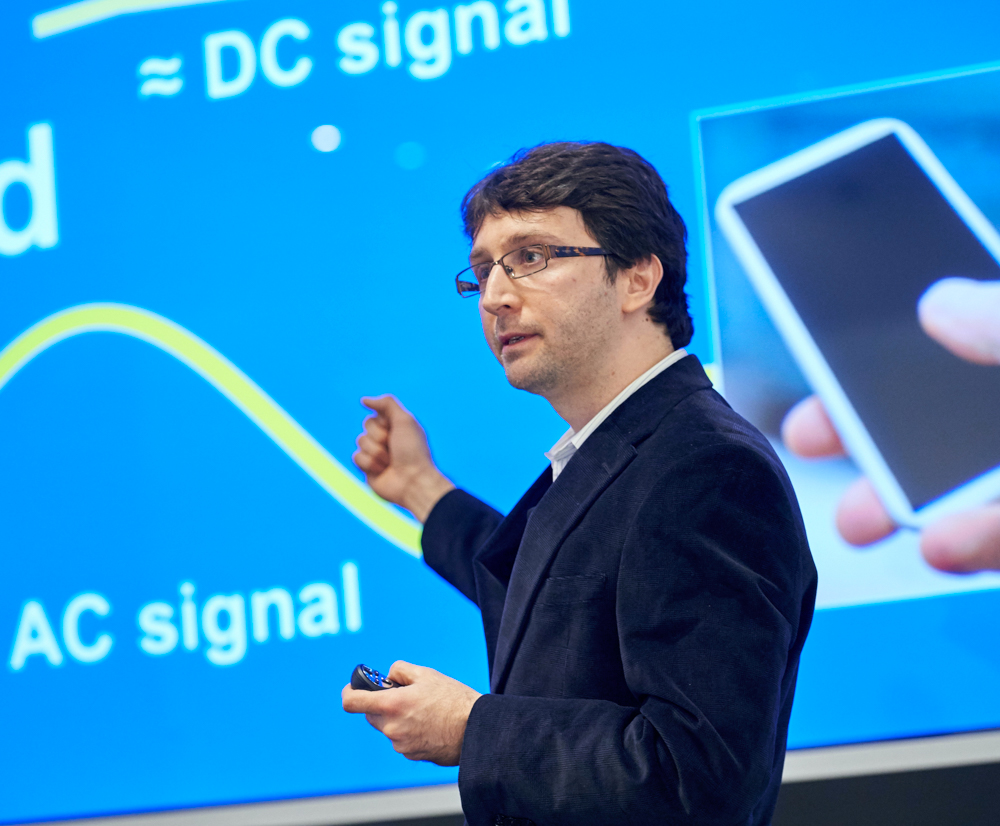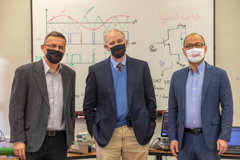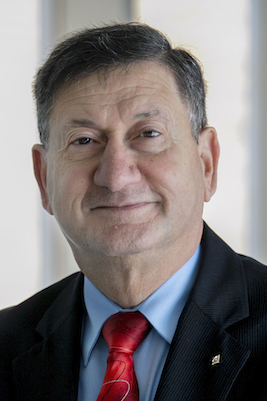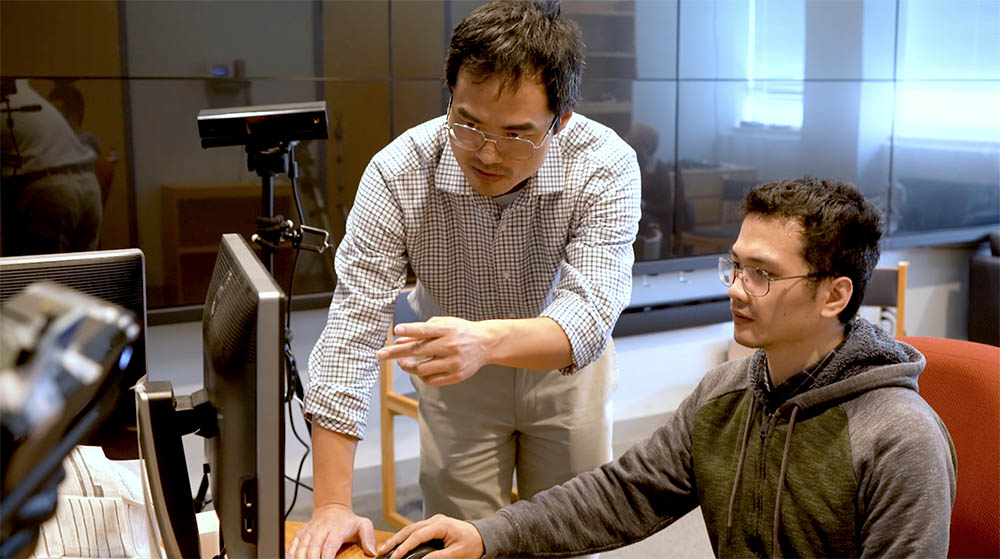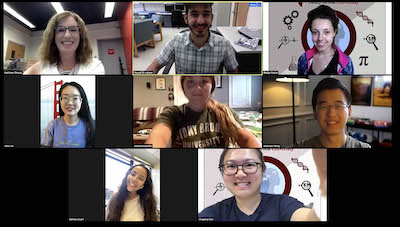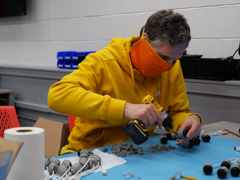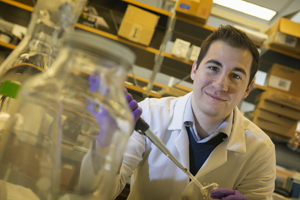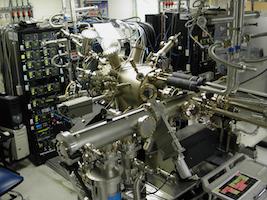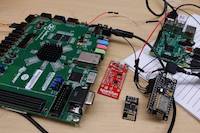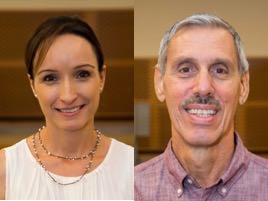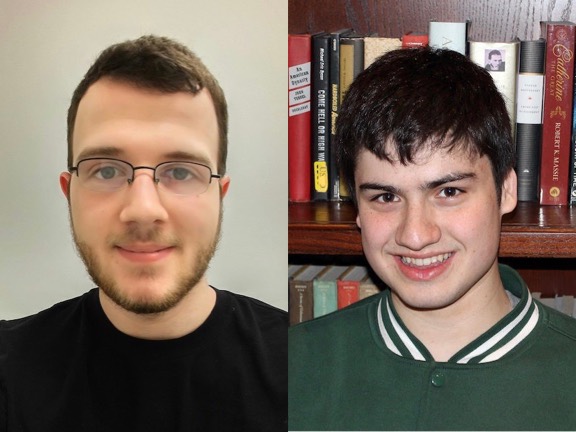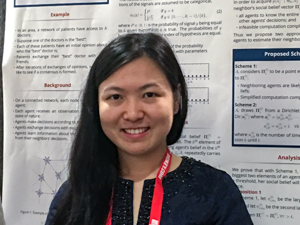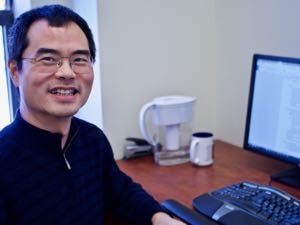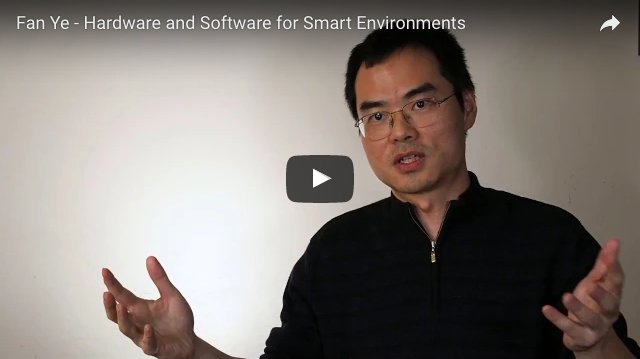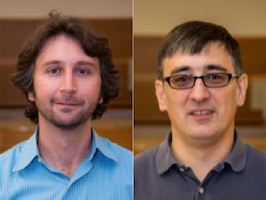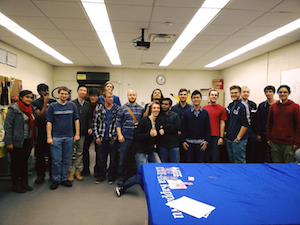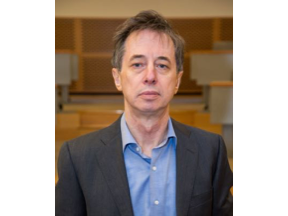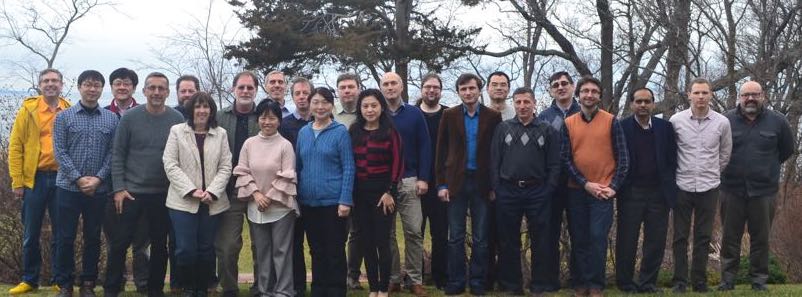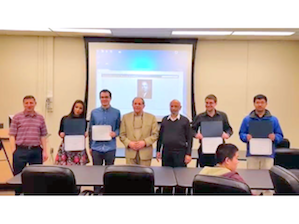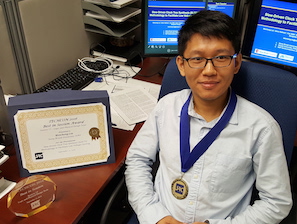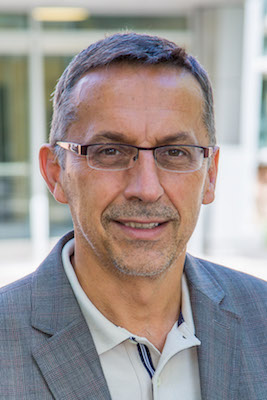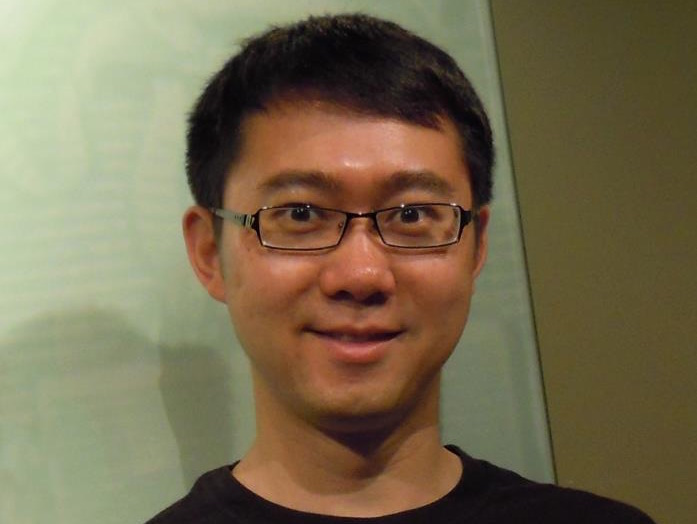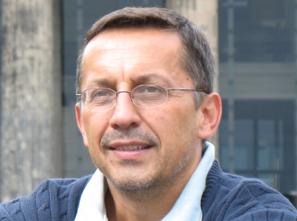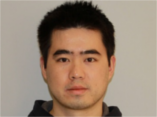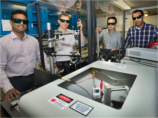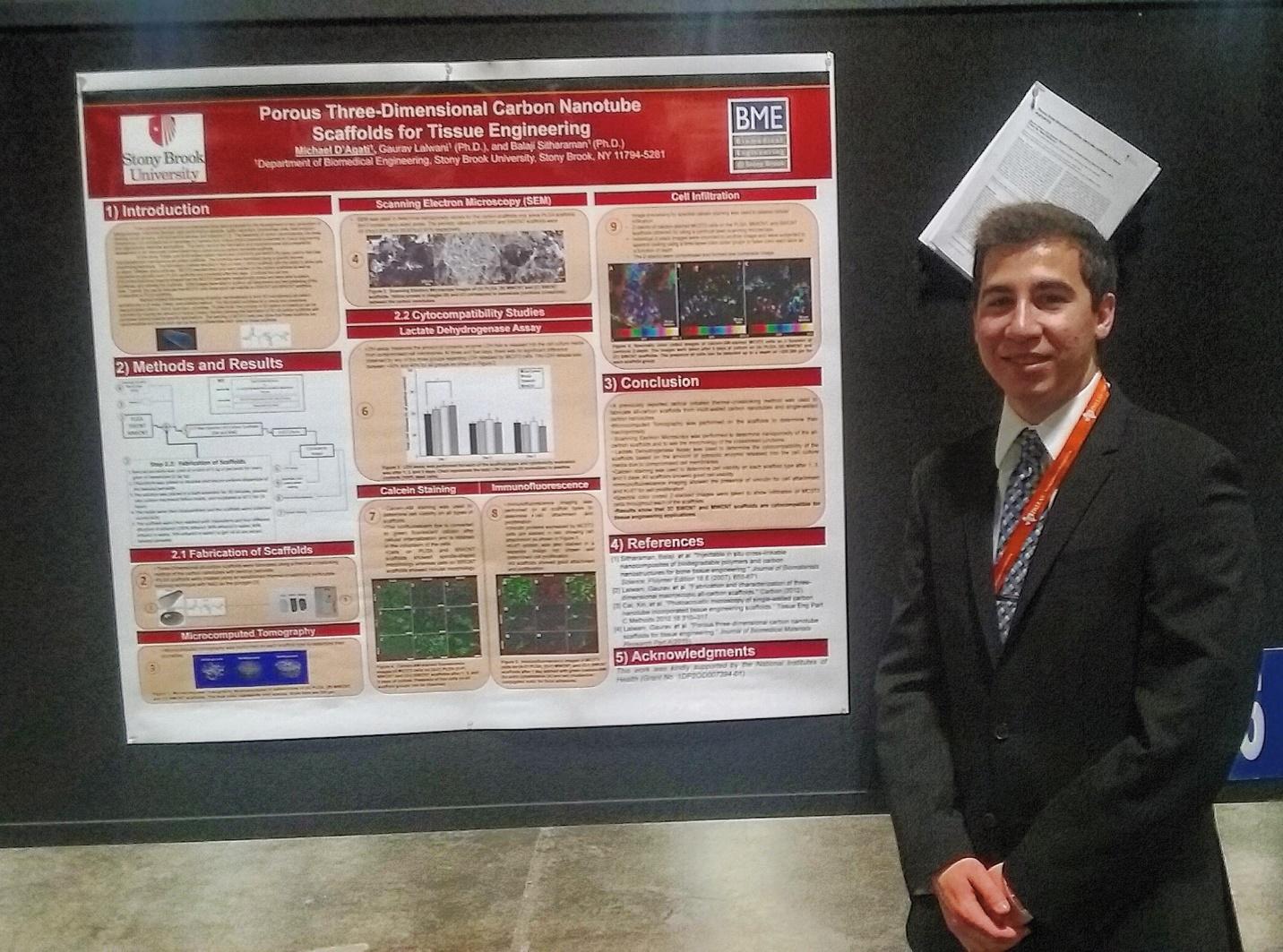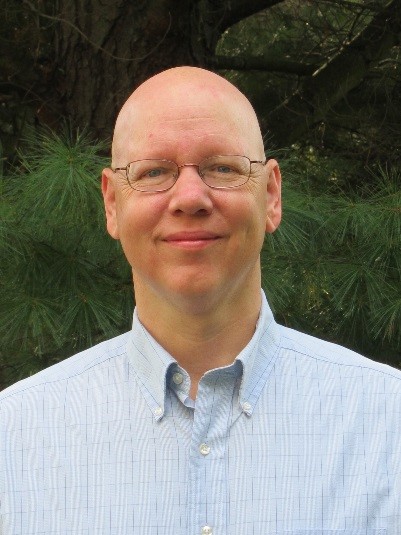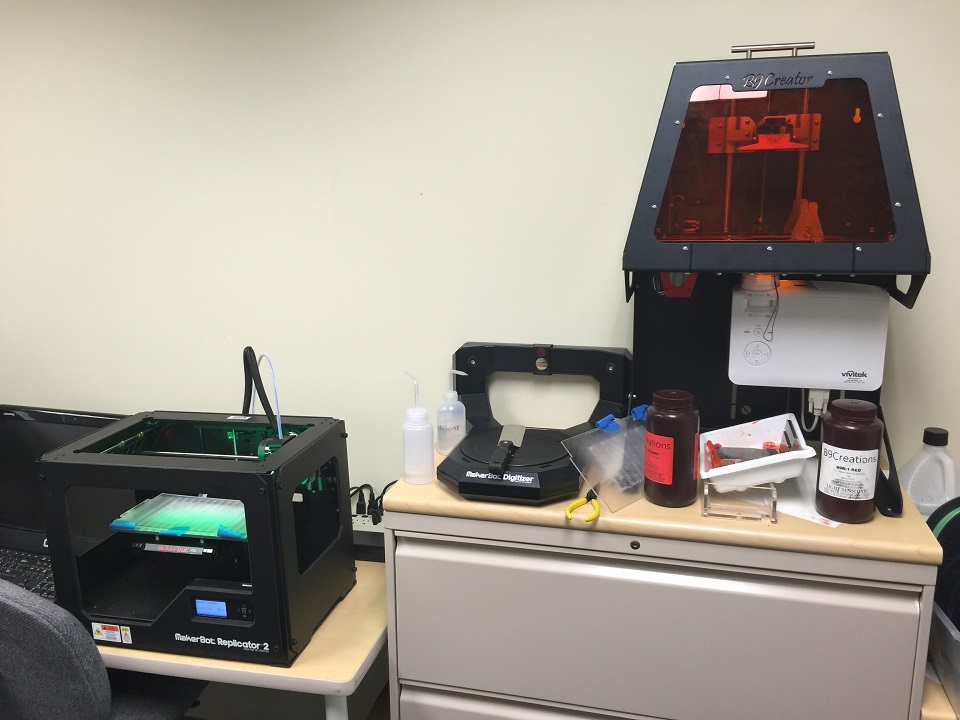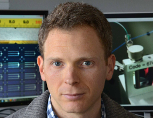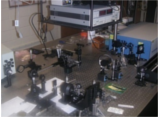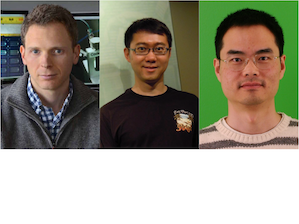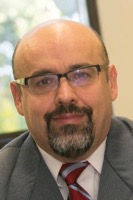ECE Department News
2025 ECE Department Award Ceremony Honors Outstanding Students
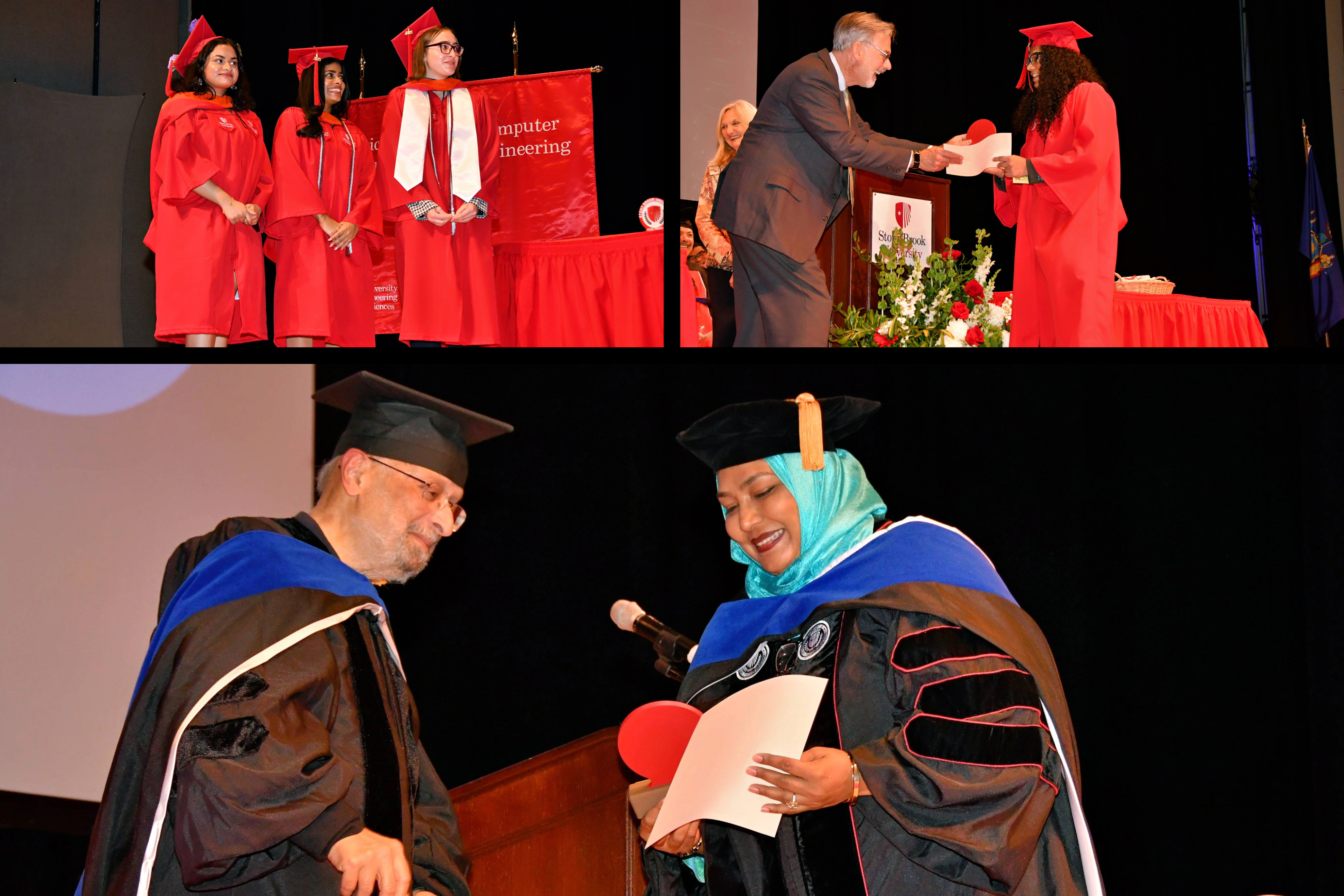 |
| Elizabeth Rand, Dhanya Moncy, Arpita Saha, Angelo Coonghe and Laiba Bilal |
The Department of Electrical and Computer Engineering proudly recognized student excellence during its 2025 Award Ceremony, held alongside commencement on May 22. This year’s recipients included Kamil Galatzka and Laiba Bilal for the Armstrong Awards, Angelo Coonghe for the Driscoll Award, and the capstone team of Elizabeth Rand, Dhanya Moncy, and Arpita Saha for the Artem Ayzen Capstone Award. These honors celebrate academic achievement, innovation, and dedication to engineering.
Distinguished Professor Petar Djurić to Deliver Plenary Talk at IEEE Statistical Signal Processing Workshop in Edinburgh
 |
| Distinguished Professor Petar M. Djurić |
SUNY Distinguished Professor Petar M. Djurić has been invited to give a plenary talk at the prestigious 23rd IEEE Statistical Signal Processing Workshop (SSP 2025), taking place in Edinburgh, Scotland. His presentation, focused on causal inference in data science, highlights his continued leadership in signal and information processing research.
Professor Djurić’s plenary talk, titled “Quantifying causal relationships: Dynamic strengths, attributions, and confounders,” will take place on June 10 from 9:00 AM to 10:00 AM EST. His presentation addresses foundational challenges in data-driven causality, proposing novel methodologies for quantifying causal strength in both static and dynamic systems, with special attention to latent confounders and attribution analysis.
Stony Brook and ECE Department Hosts 2025 IEEE Student Conference
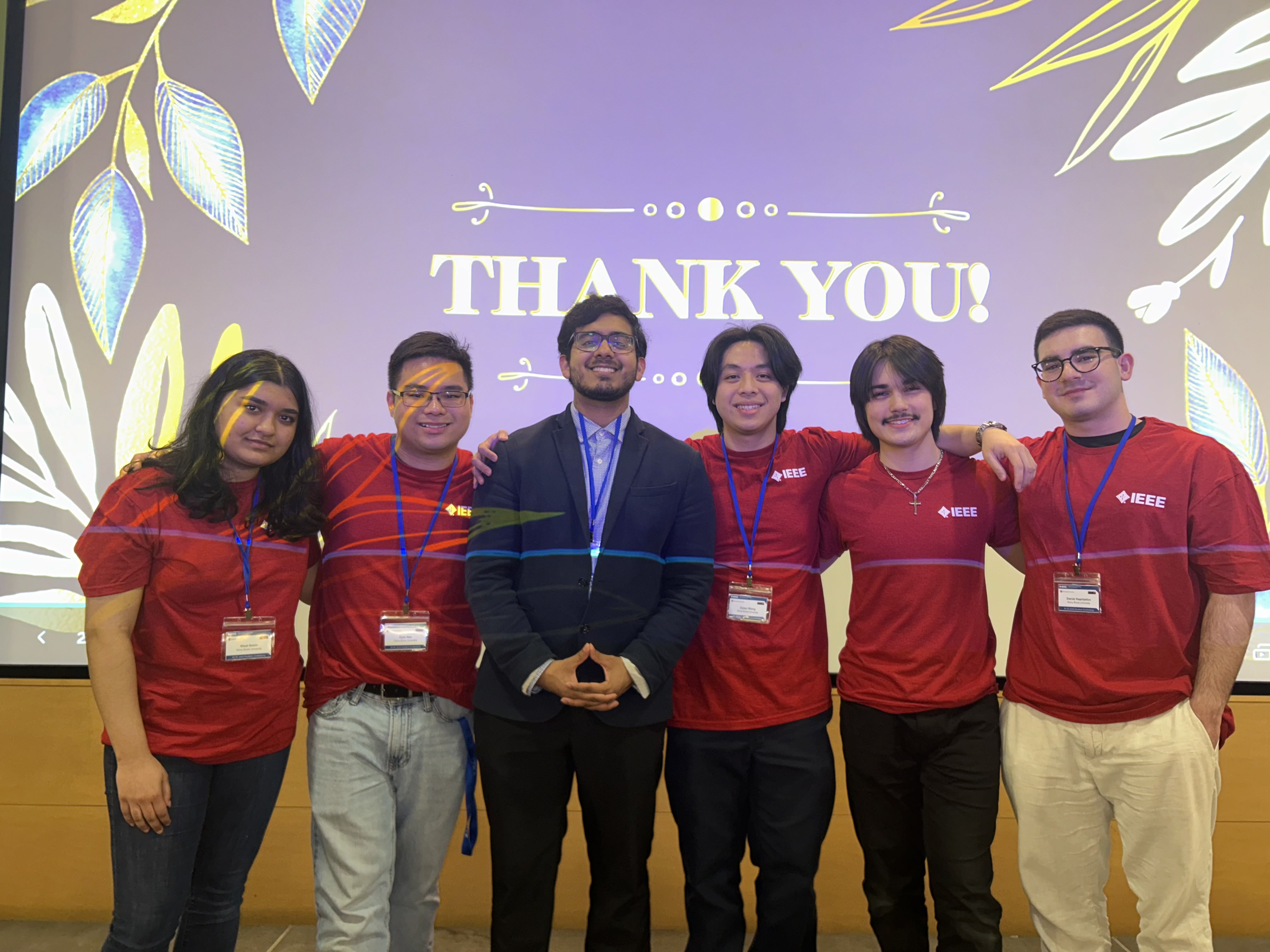 |
| Department Coordinator Adam Ortiz & E-Board of the Stony Brook IEEE Student Branch |
Stony Brook University served as the proud host of the 2025 IEEE Region 1 & 2 Joint Student Conference, drawing over 300 students, faculty, and professionals for a weekend of workshops, competitions, and networking. ECE Department Coordinator Adam Ortiz helped open the conference with welcoming remarks and represented the department at the Company expo.
Professor Peng Zhang Leads AI-Driven Grid Project And Aims To Strengthen Power Resilience
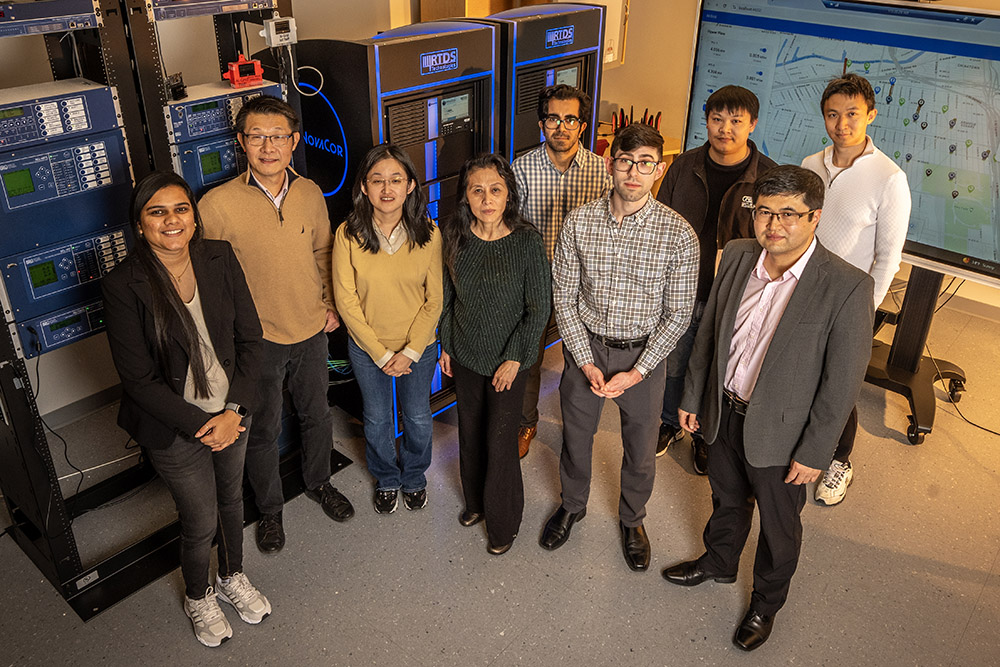 |
| Professor Peng Zhang |
A cutting-edge research initiative at Stony Brook University is leveraging artificial intelligence to enhance the resilience of power grids. Led by Professor Peng Zhang from the Department of Electrical and Computer Engineering, the project seeks to integrate AI-driven solutions that can predict and mitigate power disruptions caused by extreme weather events and cyber threats. This initiative aligns with the university’s commitment to advancing sustainable and intelligent infrastructure.
Funded by a $5 million grant from the Department of Energy, the research focuses on real-time monitoring and adaptive grid management. The AI-based system will enable energy providers to anticipate failures and optimize power distribution, ensuring a more reliable and efficient grid. By incorporating advanced machine learning techniques, the project aims to set new standards in energy resilience and pave the way for smarter, more adaptive power systems.
Discovery Prize Finalist: Assistant Professor Yifan Zhou Champions Quantum-Driven Analytics for a Resilient Power Grid
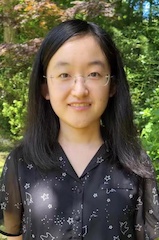 |
| Assistant Professor Yifan Zhou |
Assistant Professor Yifan Zhou of the Department of Electrical and Computer Engineering has been named a finalist for the 2025 Stony Brook Foundation Discovery Prize, an award that recognizes early-career researchers driving scientific breakthroughs and innovation. Zhou’s pioneering work at the intersection of power systems, quantum computing, and machine learning is setting the stage for transformative advancements in the energy sector.
Zhou and her research team are developing intelligent, adaptive, and ultrascalable power system operations designed to support real-time analysis and decision-making. By harnessing the power of quantum-driven analytics, her work aims to create resilient energy systems capable of managing massive distributed resources in a rapidly evolving grid environment. “Our approach is about rethinking power grid operations through cutting-edge quantum and AI technologies, ultimately paving the way for a provably resilient energy sector,” Zhou explained.
Professor Short is Awarded the Dean’s Excellence Professorships for Teaching Award
 |
| Professor Short |
It is the Electrical and Computer Engineering Department's pleasure to announce that Professor Short has been awarded the Dean’s Excellence Professorships for Teaching Award! This award acknowledges our leading faculty in teaching impact as measured by factors that include innovative methods and technologies, student outcomes achievement, inclusive pedagogy, and broad impact on student success and professional development as informed by alumni feedback. These awards typically carry a three-year term.
Professor Doboli and PhD Student Hashmath Shaik present a innovative App at Inclusion Done Right! Conference
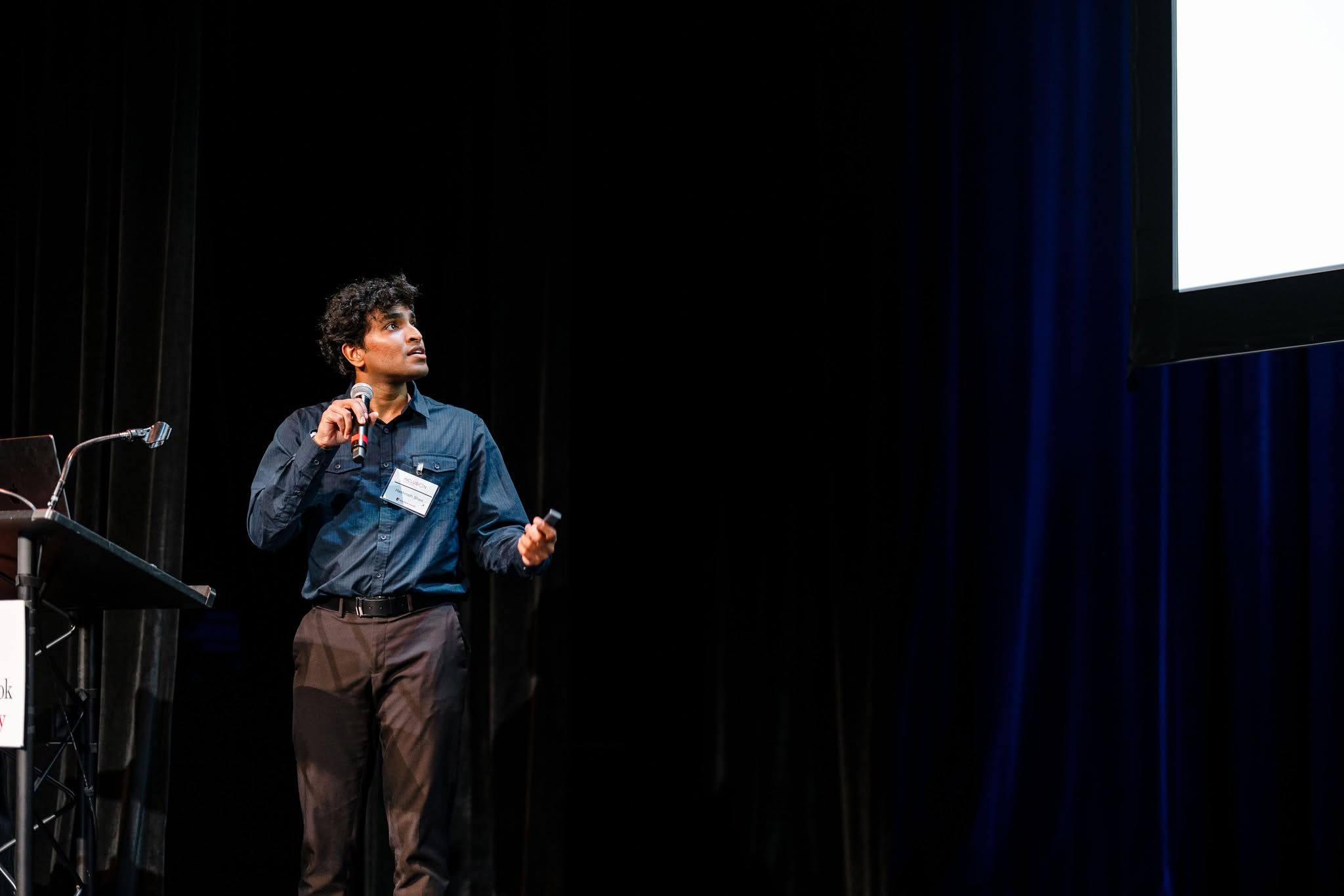 |
| Professor Doboli and Hashmath Shaik |
Professor Alex Doboli and student Hashmath Shaik from the Department of Electrical and Computer Engineering worked with the School of Health Professions to develop a new innovative tool. The faculty and students collaborated to design Inclusion Done Right! The App. This app provides real-time community-based opportunities for individuals with disabilities and their caregivers. The audience was invited to scan a QR code to download the app during the presentation.
Mónica Bugallo and her team awarded $2 Million NSF grant to help Disadvantaged ECE Students
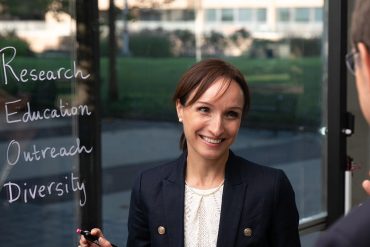 |
| Professor Mónica Bugallo |
Professor Mónica Bugallo and her team are aiming to tear down barriers in STEM education with a new $2 million NSF grant.
The project will fund scholarships for at least 30 low-income Electrical and Computer Engineering (ECE) students over the course of five years. The scholarships will cover over 20 hours of work weekly for each student, allowing students to focus on their studies.
Professor Fan Ye is inducted into IEEE Fellow Class of 2025
Professor Fan Ye is inducted into the IEEE Fellow Class of 2025.
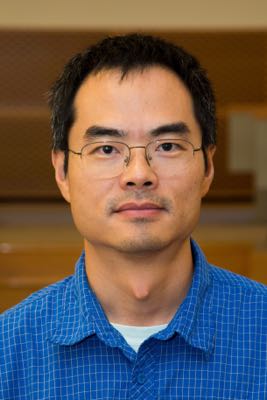 |
| Professor Fan Ye |
The IEEE Fellow Class recognizes unusual distinction in the profession and is reserved for a person with an outstanding record of accomplishments in any of the IEEE fields of interest.
The accomplishments that are being honored have contributed importantly to the advancement or application of engineering, science and technology, bringing the realization of significant value to society.
Professor Fan Ye is inducted into IEEE Fellow Class of 2025
Professor Fan Ye is inducted into the IEEE Fellow Class of 2025.

Professor Fan Ye The IEEE Fellow Class recognizes unusual distinction in the profession and is reserved for a person with an outstanding record of accomplishments in any of the IEEE fields of interest.
The accomplishments that are being honored have contributed importantly to the advancement or application of engineering, science and technology, bringing the realization of significant value to society.
Stony Brook Power Packaging Team Wins Phase 1 of the $2.25M Silicon Carbide Packaging Prize
The U.S. Department of Energy’s Office of Electricity announced the Phase 1 winners of the prestigious $2.25 million Silicon Carbide (SiC) Packaging Prize this week, recognizing eight innovative teams from across the nation.

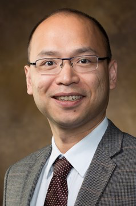
Professor Fang Luo and Silicon Carbide Packaging Among them, the Stony Brook Power Packaging Team, based at Stony Brook University, secured a $50,000 cash prize and advanced to the competition's next phase.
Distinguised Professor Djuric and Professor Milutin Stanacevic Issued A New Patent
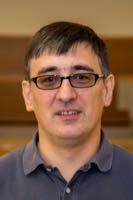
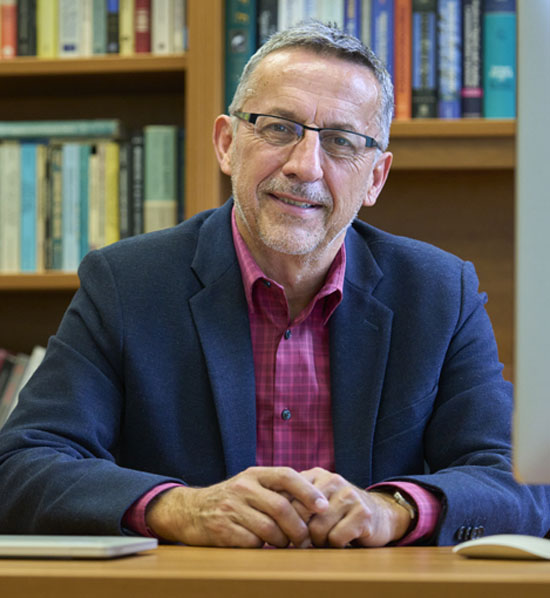
Distinguised Professor Djuric and Professor Milutin Stanacevic We are thrilled to announce the recent patent grant for the groundbreaking patent, Method for Passive Wireless Channel Estimation in Radio Frequency Network and Apparatus for Same. This innovation promises to revolutionize how wireless communication channels are analyzed, enabling more efficient and cost-effective network designs.
Shreepooja Singh recieves the Honorable Mention in Graduate Presentation Award at the North American Power Symposium (NAPS) 2024
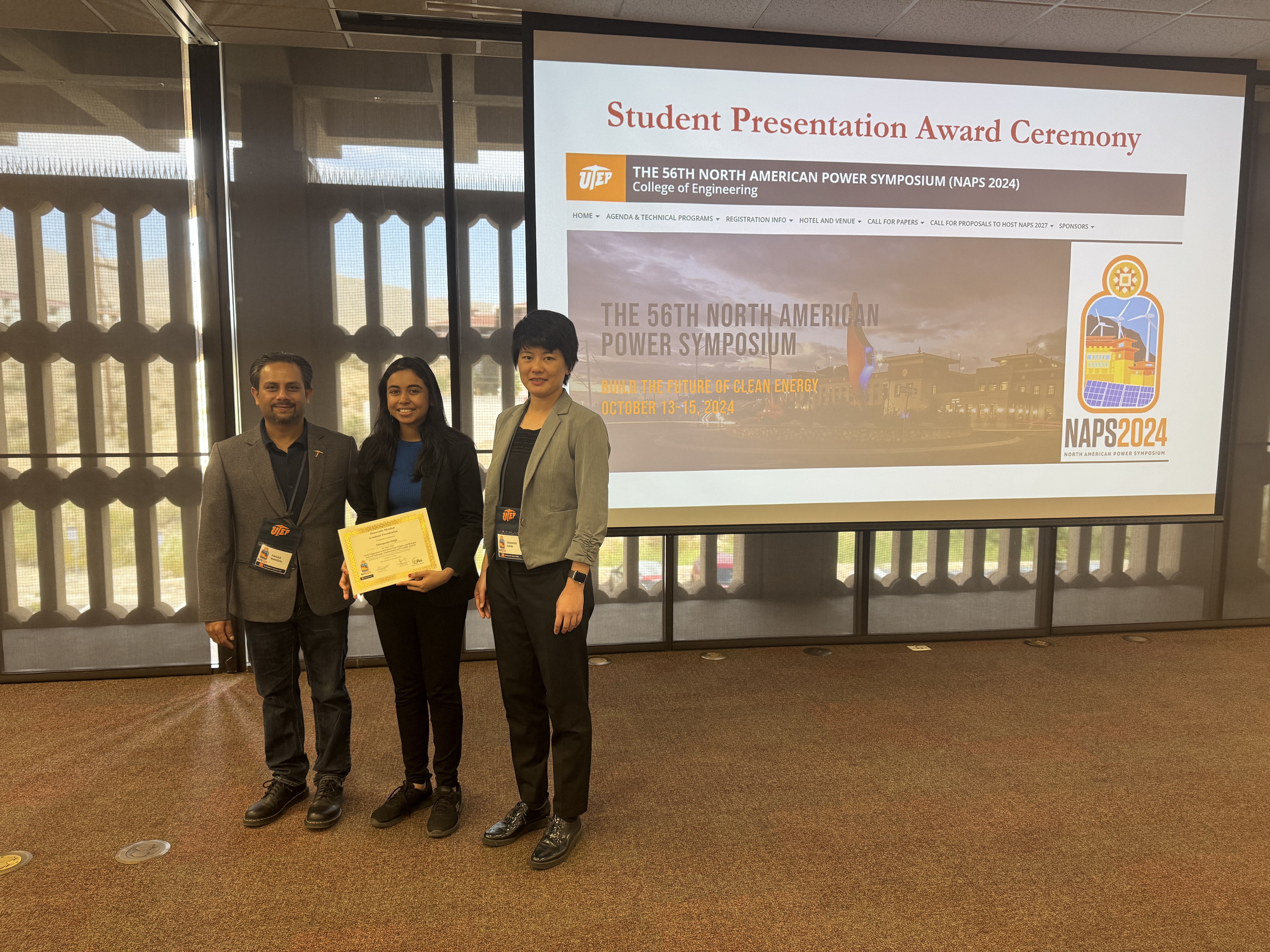
Shreepooja Singh The Electrical and Computer Engineering Department would like to congratulate Shreepooja Singh for winning the Honorable Mention Graduate Presentation at the North American Power Symposium for her paper "Flicker Suppression in Hybrid Wind Turbines with Hydrogen Fuel Cell Technology: Implementation and Feasibility Analysis". This recognition highlights the quality and impact of the research presented, showcasing the hard work and dedication of the team involved. It's a significant achievement that reflects positively on the institution and its commitment to advancing knowledge in power systems.
Stony Brook ECE course on the Effect of Radiation on Electronics

Space Saturn Sun A new three-credit, graduate online course this Spring 2025, entitled ESE 551 Electronics and Radiation Effects, may be of interest to engineers and technical people including physicists working in industry.
Offered by Stony Brook University’s Department of Electrical and Computer Engineering and taught by Professor Thomas Robertazzi, the course covers the effect of radiation (from space or earth-based sources) on electronics. Radiation can damage electronics either permanently or in a transient fashion. The topic is relevant to designing electronic circuits for spacecraft.
Electrical and Computer Engineering Department Congratulates Dmitrii Etingov: Top 5 Finalist in the 2024 NGN Paper Competition
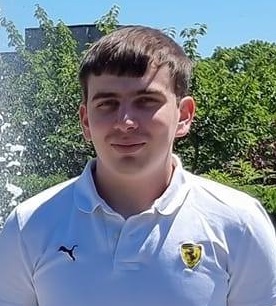
Dmitrii Etingov The Electrical and Computer Engineering Department is proud to announce that Dmitrii Etingov has been named a top 5 finalist in the prestigious 2024 NGN Paper Competition. His research has captured the attention of the judges, showcasing his exceptional skills and innovative approach to advancing the field.
As a finalist, Dmitrii has been invited to present his work at the upcoming Grid of the Future Conference in Raleigh, North Carolina. During this conference, he will deliver a 10-minute presentation to an esteemed audience, followed by a Q&A session, where he will engage with industry leaders and felllow innovators. This recongnition highlights Dmitrii's commitment to pushing the boundaries of knowledge and contributing to the future of energy and power systems.The entire ECE department congratulates Dmitrii on this remarkable achievement and wishes him the best as he prepares to showcase his research at such a significant event. His hard work, perseverance, and passion for his field continue to inspire our academic community.
We are excited to see the impact his research will make at the conference and beyond.
Distinguished Professor Djuric to be Installed as Savitri Devi Bangaru Term Professor in Artificial Intelligence
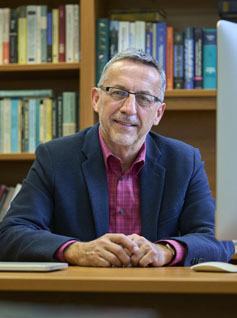
Distinguished Professor Djuric We are excited to announce that Petar Djuric from our department will be formally installed as the Savitri Devi Bangaru Term Professor in Artificial Intelligence. This prestigious event will take place at the upcoming Investiture Ceremony, and we invite the academic community to join us in celebrating this important milestone.
Event Details:
- Date: Friday, October 25, 2024
- Time: 11:00 AM
- Location: Charles B. Wang Center Theater
This occasion will be a wonderful opportunity to come together as a community in support of Petar Djuric and to recognize the unity and excellence within our department.
A reception will follow the ceremony, and we warmly invite all attendees to join us for light refreshments.
Please RSVP by Friday, October 18th here.
For further inquiries, feel free to contact us at advancement_events@stonybrook.edu or call (631) 632-4466.
The Electrical and Computer Engineering Department looks forward to celebrating this momentous occasion with you!
Rachel Leong is Awarded 2nd Best Student Project at the Eindhoven Semiconductor Summer School (ESSS)
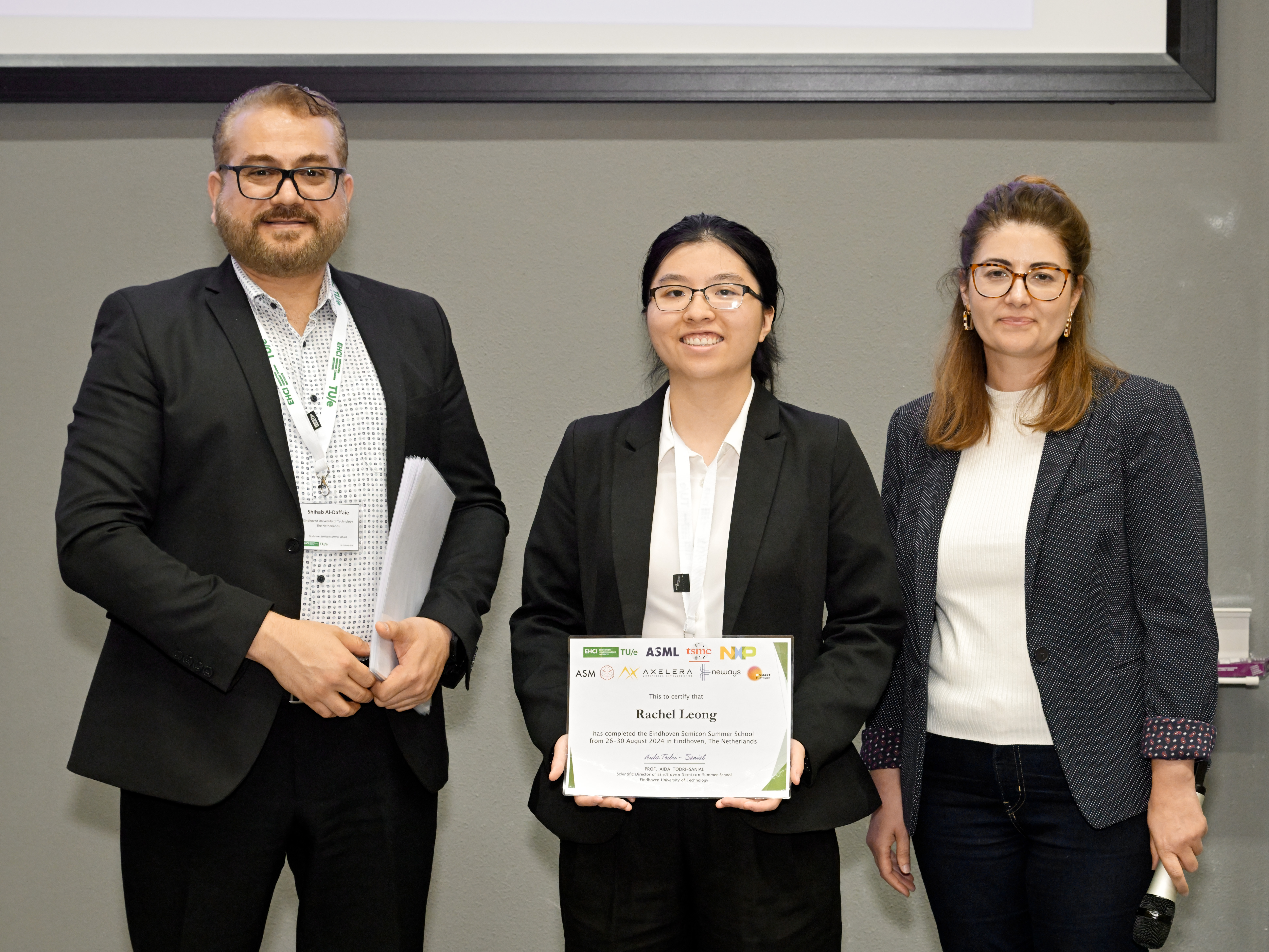
Dr. Shihab Al-Daffaie, Rachel Leong, and Prof. Aida Todri-Sanial We are thrilled to congratulate Rachel Leong, a master's student from our Electrical and Computer Engineering Department, for her impressive achievement at the Eindhoven Semiconductor Summer School (ESSS) hosted by the Technical University of Eindhoven (TU/e) in the Netherlands.
Over the course of a dynamic and challenging five-day program, students from around the world immersed themselves in cutting-edge advancements in semiconductor technology. The ESSS brought together 60 students from nine countries, representing 16 universities, offering a unique opportunity for them to collaborate, learn from industry leaders, and engage with global experts.
Associate Professor Peter Milder Recieves SBU/BNL Seed Grant
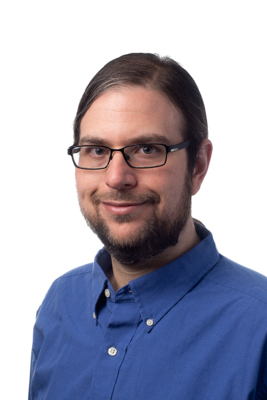
Associate Professor Peter Milder We are trilled to announce that Associate Professor Peter Milder, in collaboration with Professor Emre Salman and Professor Tom Robertazzi, and Dr. Xiaodong Jiang of Brookhaven National Laboratory, has been awarded a SBU/BNL Seed Grant for their proposal, "Next Generation Diagnostic Tests for Radiation Tolerant AI Hardware." This underscores the innovative research taking place within the Electrical and Computer Engineering Department at Stony Brook University.
The grant is funded by the Office of the President and the Brookhaven National Laboratory (BNL) Affairs Office. These funds will support the team's research, which aims to develop advanced diagnostics tests for AI hardware that can withstand radiation. The project holds promise for enhancing the reliability and robustness of AI systems in enviornments exposde to high levels of radiation, such as space exploration and nuclear facilities.
2024 Armstrong Memorial Research Foundation
Awards to Stony Brook University Electrical
Engineering Students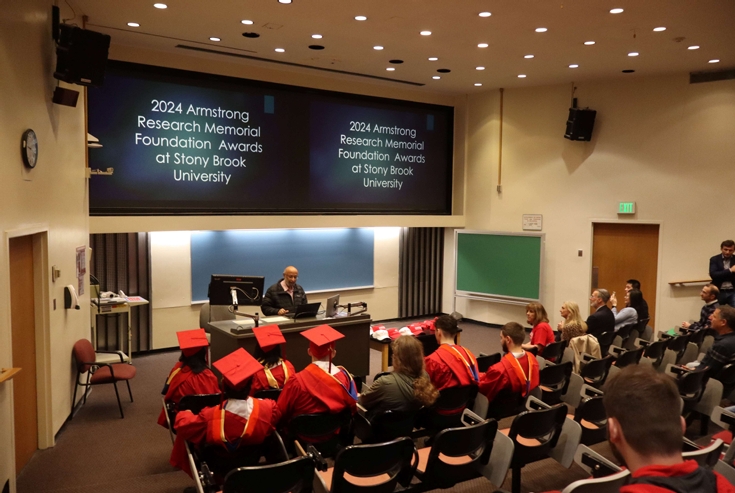
Prof. Jayant Parekh presenting a talk on Armstrong's life and genius One undergraduate EE student (Rachel Leong) and one graduate EE student (Chi-Hua Chang) have been recipients of the 2024 Armstrong Memorial Research Foundation (AMRF) awards for excellence in high GPA achievement. Professor Jayant P. Parekh, who is also Vice President of the AMRF, handed out an award certificate and a check for $1000 to each of the awardees following a presentation on the achievements and genius of Edwin Howard Armstrong (1890-1954).
The award ceremony coincided with the university graduation ceremony held on May 17, 2024. Attending the ceremony were the awardees, graduating students and accompanying family members and friends, and participating faculty. Breakfast and refreshments were served at the event.
The AMRF awards are an annual event at two universities, Columbia University and Stony Brook University, which are on the Board of Directors of the AMRF and are recipients of funding for the awards from the AMRF.
The Awards are given in honor of Major Armstrong, the inventor of FM radio, who ranks among the greatest scientists of all time.
The Future: Space Weather and Accelerator Training

Image Credit: NASA Space weather refers to the variation in the flow of high-energy charged particles in space from the sun and from outside the solar system. It can especially degrade or damage living things, such as astronauts, and electronics in spacecraft. As we enter a period with a greater presence in space, promising a new age of exploration and economic growth, there is a need to understand the effect of radiation on people and electronics and how to mitigate its harmful effects.
The most widely used approach to reach this understanding is through simulating space radiation on Earth using particle accelerators. Brookhaven National Laboratory on Long Island used its high-energy, heavy-ion synchrotron to host NASA biology researchers studying this unique radiation as far back as the 1990s. The NASA Human Research Program (NASA HRP) studies human spaceflight compatibility, which led to the opening of a dedicated space radiation laboratory at the accelerator in 2003, now called the NASA Space Radiation Laboratory (NSRL).
Stony Brook University's ECE Department Offers Online Course in Reliability Theory for Industry Engineers

Reliability theory optimizes electric power systems This fall, Stony Brook University’s Electrical and Computer Engineering Department is offering an online course in Reliability Theory, a subject of significant interest to industry engineers. Reliability Theory is a versatile field with applications spanning across aerospace engineering, electronics, manufacturing, and software engineering. The principles of good reliability engineering have been instrumental in delivering the trustworthy products and services that we rely on today.
The course, ESE 540, delves into the mathematical and statistical methods used to evaluate the reliability of systems composed of various components. It covers analytical models of system analysis, lifetime distributions, repairable systems, warranties, preventive maintenance, and software reliability.
Online Electrical Engineering Degree: Opportunity for Nontraditional students
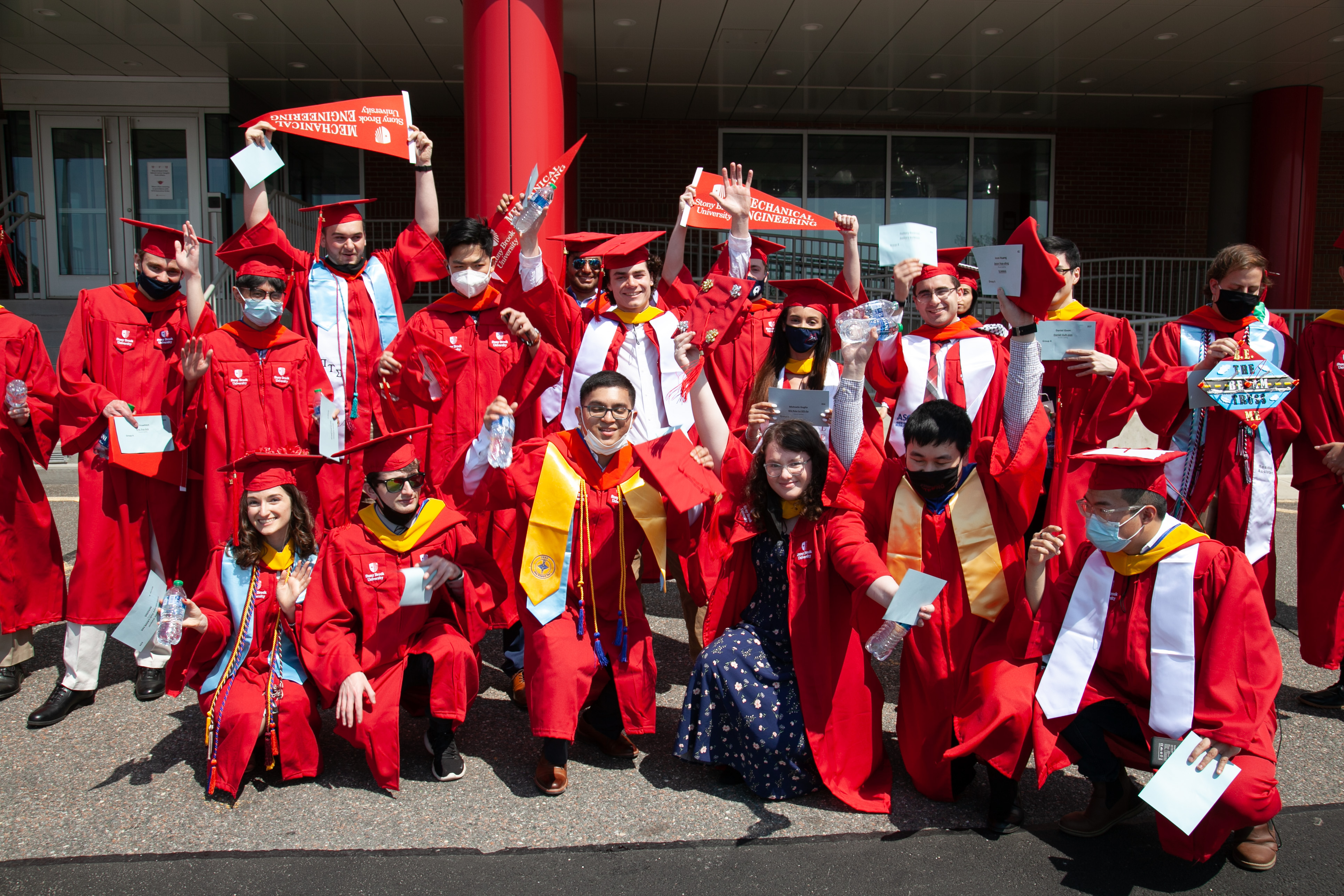
The Department of Electrical and Computer Engineering is proud to offer our online Bachelor of Science (BS) degree in Electrical Engineering. This program is tailored to meet the needs of non-traditional students who balance work and family responsibilities.
The online BS degree has been available since 2012 and is designed for students who have completed the first two years of college, potentially at a community college.
Chantalle McKim is awarded the Dean's Award for Excellence in Service by a Graduate Program Coordinator
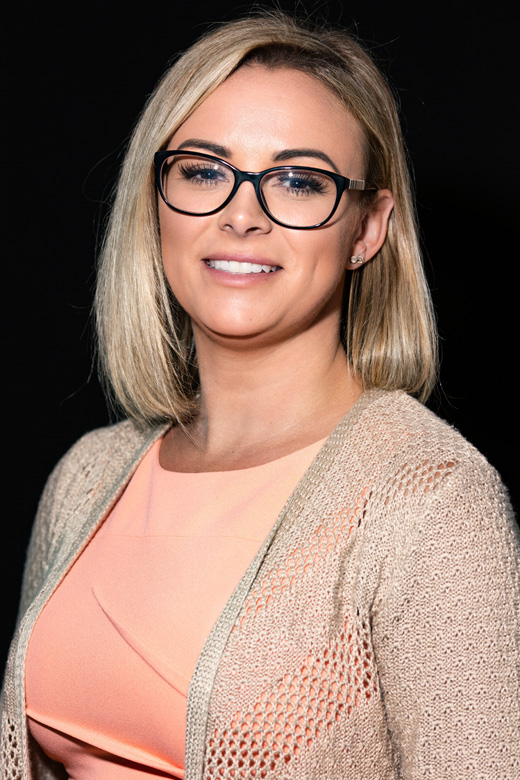
Graduate Program Coordinator Chantalle McKim Chantalle McKim is recognized for her excellence in service at Stony Brook University. As a staff member of the Electrical and Computer Engineering department at SBU, Chantalle has been recognized for her exceptional contributions to the university.
Chantalle's contributions to the Electrical and Computer Engineering department have been exceptional, playing a significant role in the university's functions and its commitment to deliver education that is both pioneering and comprehensive.
ECE IEEE wins Velio Marsocci Outstanding Student Branch Award 2024
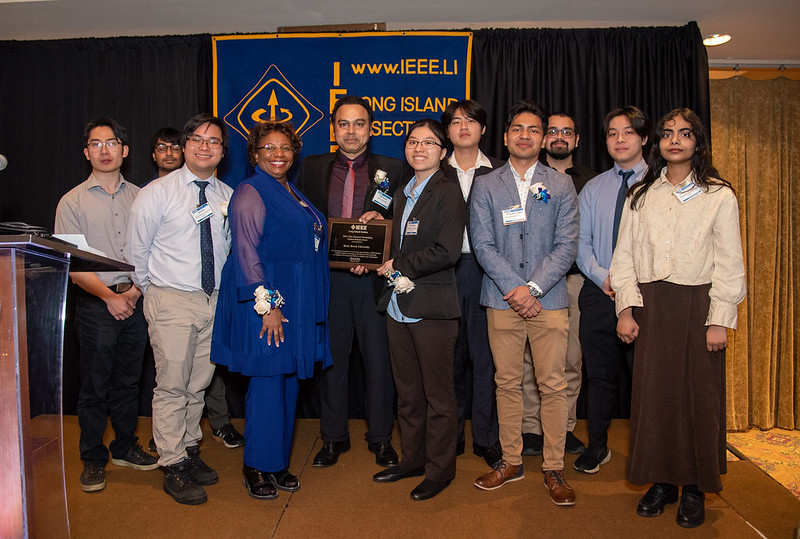
2024 Velio Marsocci Outstanding Student Branch Award The Electrical and Computer Engineering Department is thrilled to announce that our IEEE Student Branch has been awarded the esteemed 2024 Velio Marsocci Outstanding Student Branch Award. The award was presented at the IEEE Long Island Awards Banquet held at the Crest Hollow Country Club on March 21, 2024.
PhD students Laiba Bilal and Marija Iloska compete in SBU 3MT 2024: Laiba Bilal Wins People's Choice
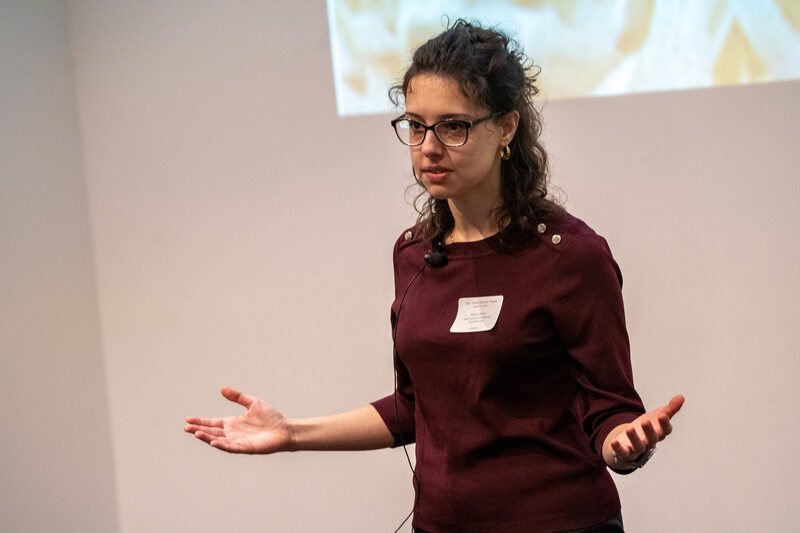
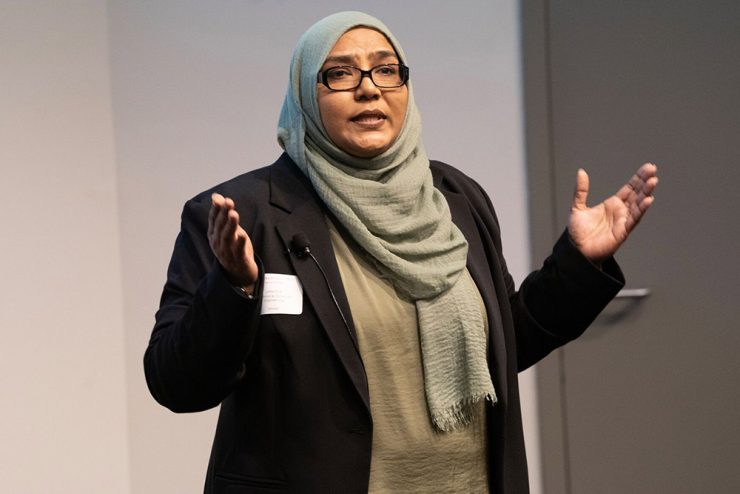
Laiba Bilal Marija Iloska The Three Minute Thesis (3MT) competition challenges SBU graduate students to present their dissertation research findings to a general audience in just three minutes, using only one PowerPoint slide. The goal is to engage all their communication skills to make their research vivid and engaging while emphasizing its key point without jargon.
This year, two exceptional PhD students from the Electrical & Computer Engineering department, Laiba Bilal and Marija Iloska, made their mark in the SBU 3MT 2024 event.
The Future: Space Weather and Accelerator Training

Space weather refers to the variation in the flow of high-energy particles in space, originating from the sun and outside the solar system. This weather can degrade or damage spacecraft electronics. As we enter a new age with an increased presence in space, understanding the effect of radiation on electronics and mitigation strategies becomes crucial.
The most common approach to gain this understanding involves simulating space weather radiation on Earth using particle accelerators. Despite its widespread use, a shortage of facilities and trained personnel currently exists. Plans are underway to create new facilities, including an expansion at Long Island’s Brookhaven National Laboratory (BNL). This expansion will provide the radiation community with thousands of additional hours for experimental testing, aligning with the growing demand for space operations.
Stony Brook University's ECE Department Offers Online Course in Reliability Theory for Industry Engineers

Reliability theory optimizes space systems This fall, Stony Brook University’s Electrical and Computer Engineering Department is offering an online course in Reliability Theory, a subject of significant interest to industry engineers. Reliability Theory is a versatile field with applications spanning across aerospace engineering, electronics, manufacturing, and software engineering. The principles of good reliability engineering have been instrumental in delivering the trustworthy products and services that we rely on today.
The course, ESE 540, delves into the mathematical and statistical methods used to evaluate the reliability of systems composed of various components. It covers analytical models of system analysis, lifetime distributions, repairable systems, warranties, preventive maintenance, and software reliability.
Susan Nastro is honored with SUNY Chancellor’s Excellence Award
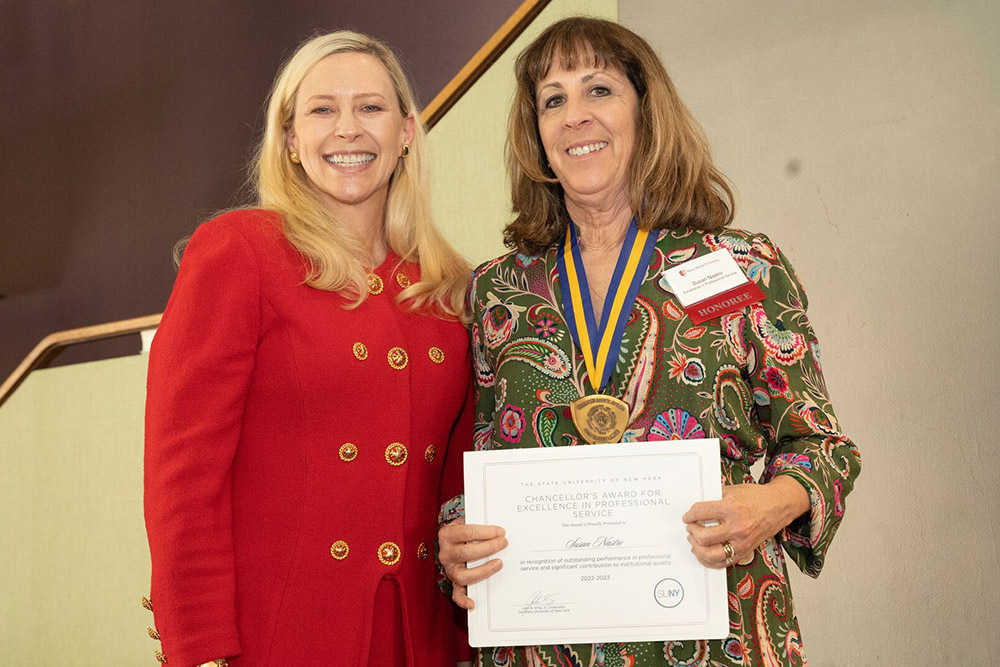
President Maurie McInnis with Susan Nastro Susan Nastro is recognized for her excellence in Professional Service at Stony Brook University. She is one of the 22 faculty and staff members who received the prestigious SUNY Chancellor’s Award for Excellence for the 2022-2023 academic year. This award is a testament to her outstanding contributions and dedication to her field.
Susan's work in the Electrical and Computer Engineering department has been of the highest caliber, contributing significantly to the university’s operations and its mission to provide innovative and inclusive education.
Prof. Fang Luo Wins The 2023 Motohisa Kanda Award

Prof. Fang Luo Fang Luo, Empire Innovation Associate Professor and Director of the Spellman High Voltage Power Electronics Laboratory at Stony Brook University, received the 2023 Motohisa Kanda Award. This award, established in 2015, honors the most cited paper in the IEEE Transactions on Electromagnetic Compatibility (EMC) over the past five years.
The award-winning paper, “A Survey of Active EMI Filters for Conducted EMI Noise Reduction in Power Electronic Converters”, was co-authored by Luo and Balaji Narayanasamy. Since its publication in 2019, it has garnered the most citations (74) among papers published in the last five years (2019-2023).
Libin Varghese appointed as Chair of IEEE PES/IAS, Long Island Section
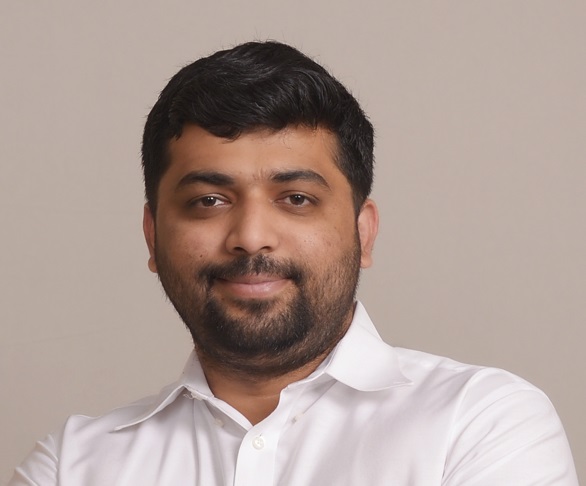
Libin Varghese Libin Varghese, an Engineer I at NYPA and a Ph.D. candidate under Peng Zhang, has been appointed as the Chair of the IEEE PES/IAS (Power and Energy Society and Industrial application Society) for the Long Island Section. His research focuses on Microgrids, and his role at IEEE underscores his commitment to the field. As an IEEE Senior Member, he has been actively contributing to the NY state decarbonization efforts and has served in various capacities, including as the advisor for the IEEE IAS RSET chapter.
Libin’s innovative projects have earned him numerous accolades, including the 3M Young Innovator and the 3M Young Innovators Challenge Award 2015. He was also among the top 40 finalists for “Innovation in Medical Science and Biotechnology” at the Festival of Innovation in 2016. His achievements also include the prestigious Best Graduate Thesis Award from IEEE IAS(2015).
Spellman High Voltage Power Electronics Lab showcasing innovations at IEEE Energy Conversion Congress & Expo (ECCE) 2023
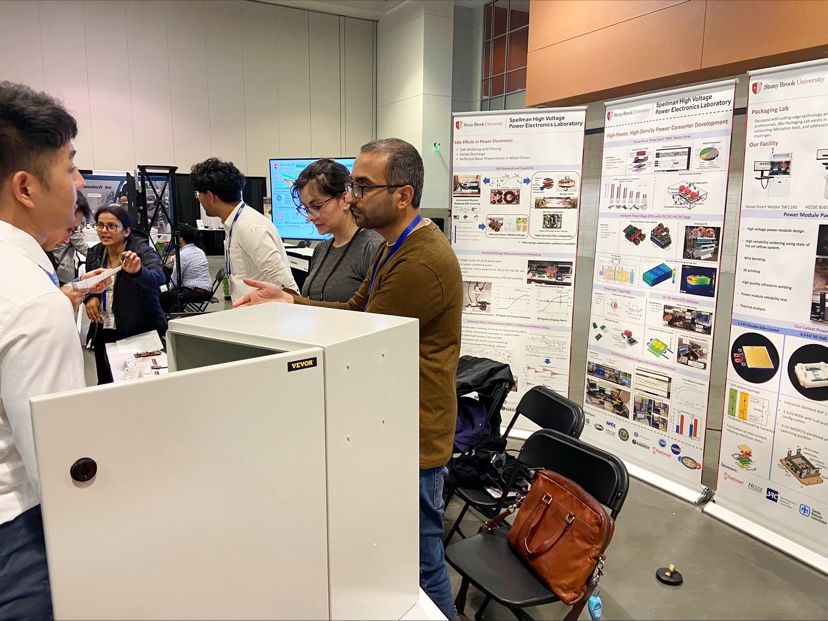
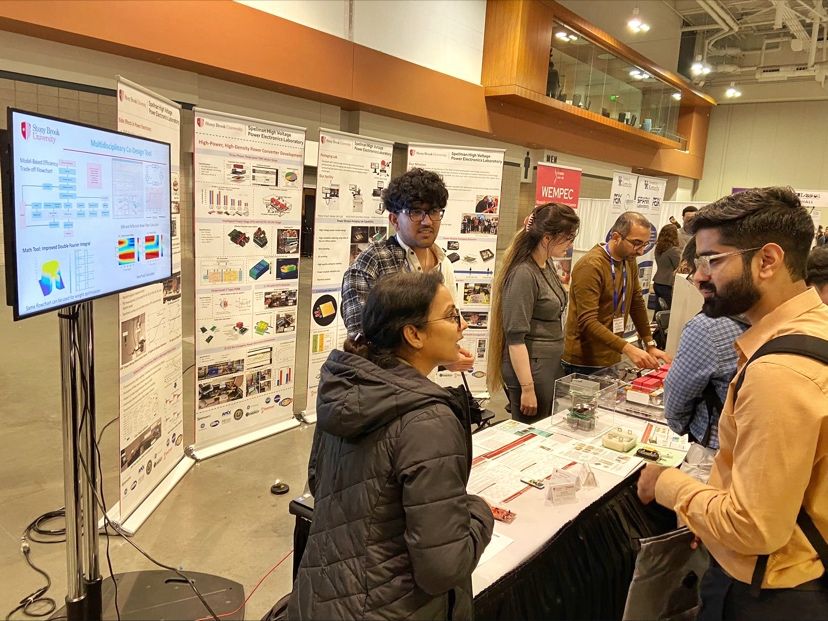
Team demonstrates health monitoring using converter digital twin Spellman High Voltage Power Electronics Lab is showcasing their 3-year-old lab developments at ECCE 2023, with an exhibition at Booth #4. The highlight of the event will be a demonstration on power converter digital twin, showcasing the lab’s innovative approach to power electronics. There are series of presentations and technical sessions.
Visitors will also have the chance to explore the lab’s latest converter and power module developments, spanning applications from aerospace to marine energy. The team is eagerly anticipating the opportunity to engage with attendees and share their groundbreaking work at this much-anticipated event.
2023 Armstrong Memorial Research Foundation Awards to Two Stony Brook University Electrical Engineering Students
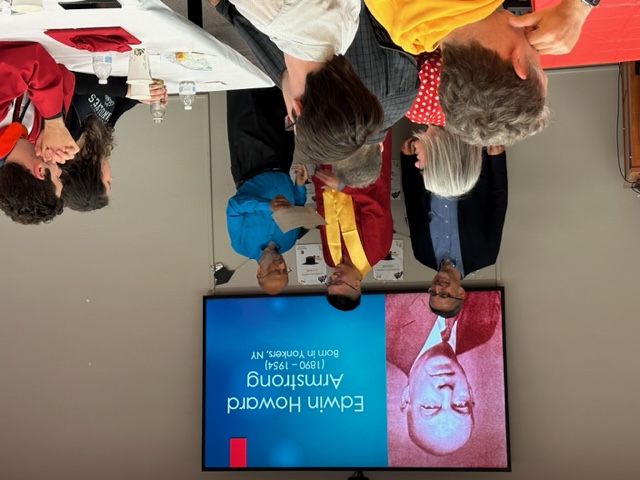
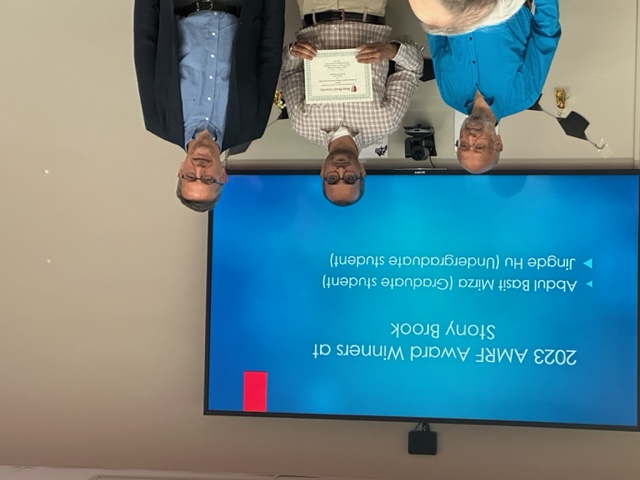 Jingde Hu Abdul Basit Mirza
Jingde Hu Abdul Basit Mirza
Beside: Prof. Parekh and Prof. Petar Djuric, EE & CE Dept. ChairOne undergraduate EE student (Jingde Hu) and one graduate EE student (Abdul Basit Mirza) have been recipients of the 2023 Armstrong Memorial Research Foundation (AMRF) awards for excellence in high GPA achievement. Professor Jayant P. Parekh, who is also Vice President of the AMRF, handed out an award certificate and a check for $1000 to each of the awardees.
The award ceremony coincided with the university graduation ceremony held on May 19, 2023. Attending the ceremony were the awardees, graduating students and accompanying family members and friends, and participating faculty. Food and refreshments were served at the event.
Mónica Bugallo Named to IEEE Society Board of Governors
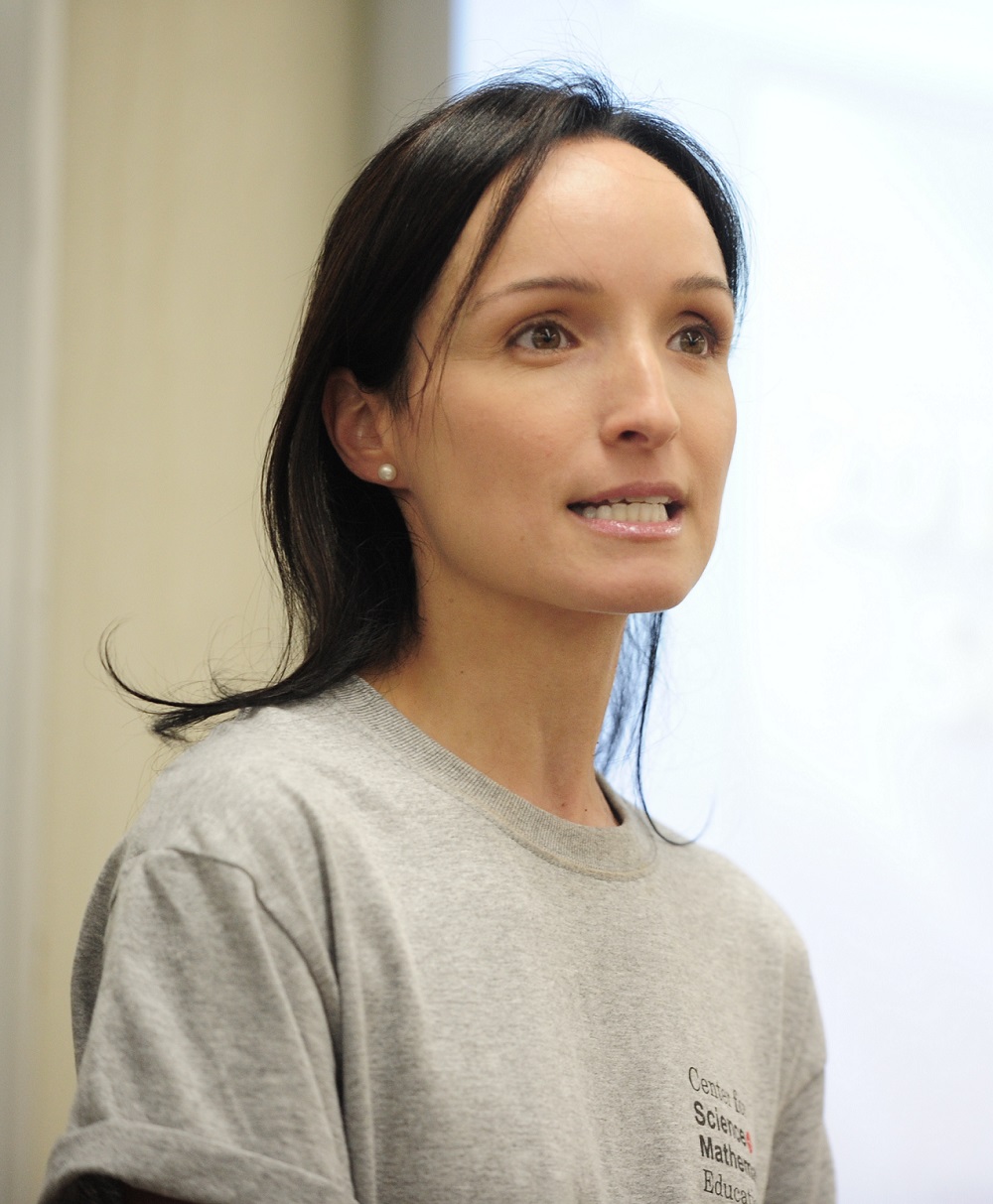
Prof. Mónica Bugallo Mónica Bugallo, professor of Electrical and Computer Engineering in the College of Engineering and Applied Sciences, has been elected a member at large on the Institute of Electrical and Electronics Engineers (IEEE) Signal Processing Society Board of Governors (BoG). Her term began January 1, 2023 and she will serve until December 2025.
Bugallo is vice provost for Faculty Affairs and Diversity, Equity and Inclusion at Stony Brook University, in addition to inaugural faculty director of the Women in Science and Engineering (WISE) Honors Program. She previously served as associate dean for Diversity and Outreach in the College of Engineering and Applied Sciences.
Josue Nassar a Finalist for Chancellor Distinguished PhD Graduate Award

Josue Nassar Josue Nassar, a PhD candidate in the College of Engineering and Applied Sciences Department of Electrical and Computer Engineering, was one of five finalists for the Chancellor Distinguished PhD Graduate Dissertation Awards, which recognize work done across the State University of New York (SUNY) system to address some of society’s most pressing issues.
Nassar was named a finalist for his dissertation, “Bayesian Machine Learning for Analyzing and Controlling Neural Populations.” He received a $1,000 award, which was announced January 19 by SUNY Chancellor John B. King, Jr.
Hesse-Spellman Forms New Research Alliance For Power Electronics Packaging

Prof. Fang Luo Hesse Mechatronics and the Spellman High Voltage Power Electronics Lab at Stony Brook University have formed a new research alliance for high performance power electronics module packaging through a no-cost loaner program including a Hesse BJ 653 wirebonder and a Hesse Smart Welder SW1185.
Advanced power modules provide the bridge between the power devices and their applications, as the module design has a strong impact on the semiconductor’s real-world in-circuit performances. With the support from Hesse, the Spellman High Voltage Power Electronics Lab can provide full capability for advanced packaging solutions, from design to validation, to advanced Wide Bandgap (SiC/GaN) and Ultra-Wide Bandgap (Ga2O3 and Diamond) Power electronics systems.
2022 Armstrong Memorial Research Foundation Awards to Two Stony Brook University Students
Cynthia Wu Mustafeez Hassan One undergraduate student (Cynthia Wu) and one graduate student (Mustafeez Hassan) have been receipients of the 2022 Armstrong Memorial Research Foundation (AMRF) awards for excellence in high GPA achievement. Each award included a certificate and a check for $1000.
The AMRF awards are an annual event at two universities, Columbia University and Stony Brook Univeristy, which are on the Board of Directors of the AMRF and are receipients of funding for the awards.
The Awards are given in honor of Edwin Howard Armstrong (1890-1954), the inventor of FM radio, who ranks among the greatest scientists of all time.
Researcher on Future Power Technology joins ECE Dept.: Prof. Yifan Zhou
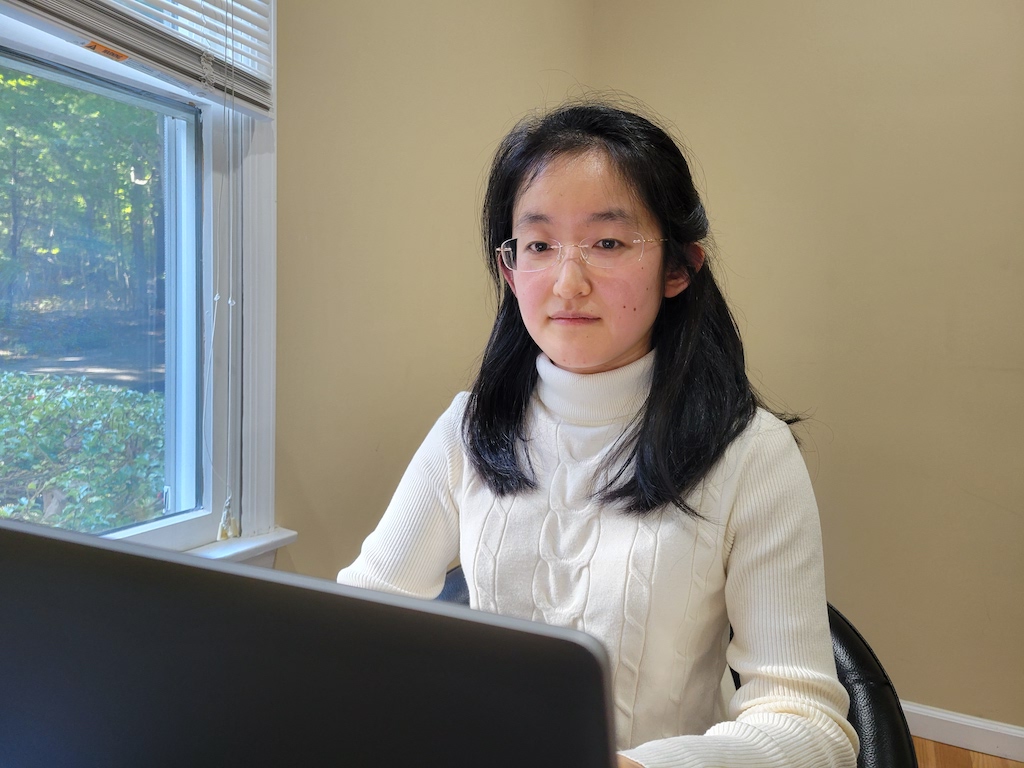
Prof. Yifan Zhou Dr. Yifan Zhou joined the Stony Brook ECE faculty as an assistant professor this past September. Prior to this, she was a postdoc in the ECE department at Stony Brook, working with Prof. Peng Zhang. She received her Bachelor's degree with the highest distinction in 2014 and her Ph.D. degree in 2019, both from the Department of Electrical Engineering at Tsinghua University in China, a world-wide top university.
Her research focuses on learning-based, verifiable smart grids, which collaboratively integrates (1) machine learning, (2) quantum computing, and (3) formal verification for enabling intelligent, resilient, adaptive, and secured power system operations and supporting extreme renewable energy integration.
RF-based Analytics with Intelligent Backscattering RF Tags
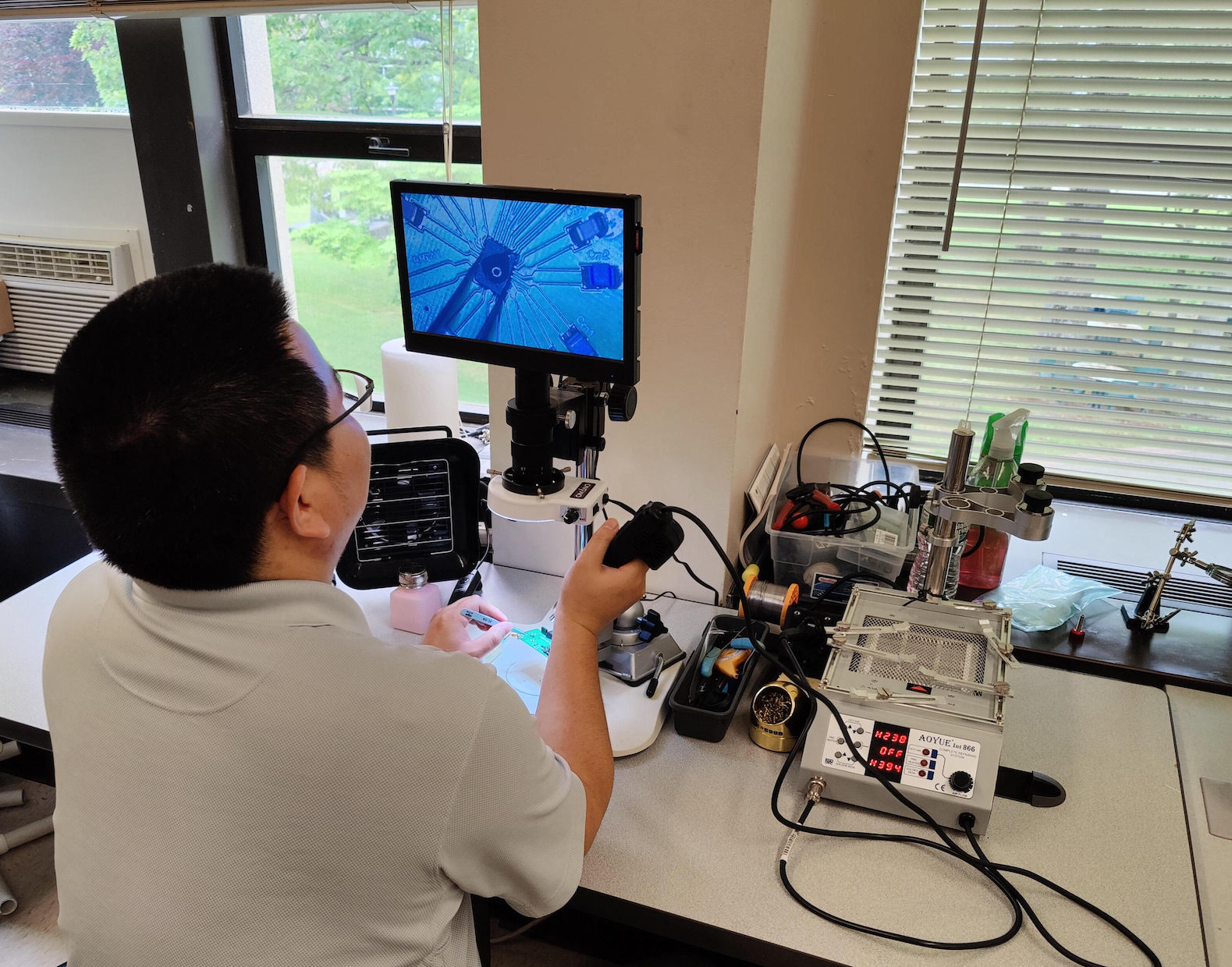
PhD student Yang Xie preparing the RF tag for testing To fully unlock the potential of the Internet-of-Things (IoT), novel sensing and energy harvesting solutions are needed. Prof. Milutin Stanacevic and a team of Stony Brook researchers he leads are developing RF (radio frequency)-based sensing technology to cyber-enable (i.e. computerize) our physical environment. The technology is based on the tiny battery-less RF tags attached to objects or integrated into structures. These RF tags will be able to sense activities and interactions among various entities around them, both tagged and not-tagged. This enables applications such as fine grain tracking of human movements, activity and gesture recognition, human-object interactions and structure monitoring. These capabilities in turn will provide an ability to query and reason about the environment in order to infer a wide range of analytic information. All of this will be achieved without the occupants (humans) within the environment having to carry or wear any devices (device free).
Senior Design Poster Day 2022

On May 3, 2022, the ECE department held our annual Senior Design Poster Day to showcase the excellent Senior Design Projects completed by our students. Please click here to view photos from the event.
New Lab Powers Research and Experiential Learning
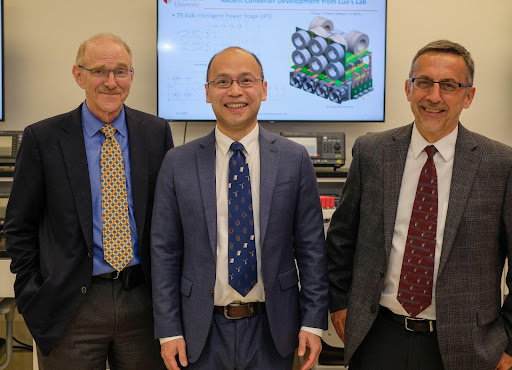
Dr. Loren Skeist, Prof. Fang Luo, and Prof. Petar Djuric Spellman Power Electronics Lab Opens in the College of Engineering and Applied Sciences
The College of Engineering and Applied Sciences opened a new engineering teaching lab in the Department of Electrical and Computer Engineering , thanks to generous funding from industry partner Spellman High Voltage Electronics Corporation . In a special ceremony on April 12, 2022, the Spellman Power Electronics Lab was dedicated as a facility to accelerate research and educational programs in alternative energy and power conversion systems.
A foundational research focus for students and faculty in the College of Engineering and Applied Sciences (CEAS) includes alternative energy and power conversion systems such as wind power generators, fuel cells, hybrid electric vehicles and all-electric ships and aircraft propulsion systems. The new lab offers students the hands-on experiential training that will give them a competitive edge for internships, graduate school, future jobs and purposeful careers.
A Rapid Breath Test for COVID
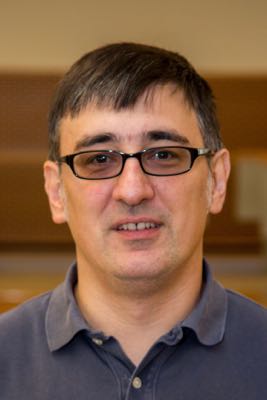
Prof. Milutin Stanacevic In an exciting development, Prof. Milutin Stanacevic of the ECE dept has collaborated with faculty researchers from The Ohio State University to produce a rapid breath test for COVID that is shown in a recent study to be highly accurate for critically ill patients. Future studies will look at the effectiveness of the breath test in less seriously ill patients and also look at its effectiveness in detecting other diseases/infections. Stony Brook University ECE graduate student Yasha Karimi was instrumental in the development of the device.
At Spellman’s Stony Brook Lab, Everything’s Under Control

Prof. Fang Luo Prof. Fang Luo joined the Electrical and Computer Engineering Department a short time ago and has established a very active research program on the next generation of power electronics. This effort has been greatly enhanced by Prof. Luo teaming up with the Spellman High Voltage Electronics Corp., a regional manufacturer of custom high voltage power systems.
Taking the Pulse of Power Systems utilizing Photovoltaic Generated Electricity
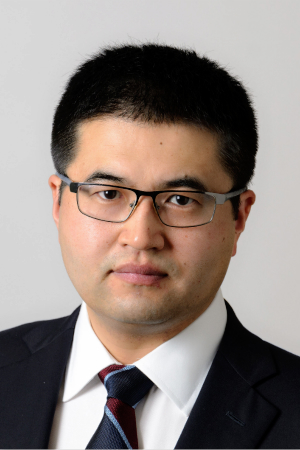

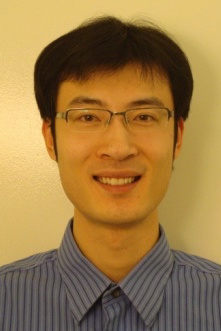
Left to right: Prof. Peng Zhang, Prof. Xin Wang, and Prof. Yue Zhao Photovoltaic electric power generation is becoming more and more common and its use is likely to grow as time goes on. However operators of electric power systems with a large photovoltaic component have a hard time predicting the behavior of the power systems. There is an urgent need for effective and accurate transient (i.e. short time frame) and dynamic (as it happens) simulation methods for power systems with high photovoltaic penetration. A team involving Stony Brook faculty Prof. Peng Zhang, Prof. Yue Zhao and Prof. Xin Wang, and post-doc Yifan Zhou recently received a major US Dept. of Energy award to fulfill this need.
Creating a More Resilient Energy Grid Through Artificial Intelligence

Stony Brook University professor Peng Zhang, a SUNY Empire Innovation professor in the Department of Electrical and Computer Engineering, is leading a statewide team of collaborators in developing “AI-Grid,” an artificial intelligence-enabled, autonomous grid designed to keep power infrastructure resilient from cyberattacks, faults and disastrous accidents.
The work is part of the National Science Foundation’s (NSF) Convergence Accelerator Program, which supports and builds upon basic research and discovery that involves multidisciplinary work to accelerate solutions toward societal impact.
Preventing Unwanted Reverse Engineering of Microchips
Prof. Emre Salman and doctoral candidate Ivan Miketic recently published a unique obfuscation technique to make digital computer chips more resistant to reverse engineering. Why is this important? One of the key security issues for chip design companies is reverse engineering. Reverse engineering involves several physical attacks to the chip to regenerate the circuit netlist. The “netlist” is the description of a circuit including the gates, inputs, outputs and their interconnections. Once the netlist is obtained, counterfeit designs that are not authentic can be fabricated. This is typically referred to as Intellectual Property (IP) theft. Reverse engineering poses a significant economic risk to the semiconductor industry due to lost profits and reputation. It also presents a considerable risk to consumers and private data.
Reducing Ocean Acidification and the Atmospheric Carbon Dioxide Concentration
Continually increasing carbon dioxide concentrations in the atmosphere have already led to changes in the climate as well as the acidification of the oceans. This increased acidity of the oceans is analogous to a slow motion “spill” of acid. And just like we clean up after oil spills, we need to clean up this acid spill as well.
The approach of ECE’s Prof. Matthew Eisaman and a team of researchers, called SEA MATE, which stands for Safe Elevation of Alkalinity for the Mitigation of Acidification Through Electrochemistry, uses carbon-free electricity and electrochemistry to effectively pump this excess acid out of the ocean and then sells the acid for useful purposes. This acid removal restores the ocean chemistry such that the remaining ions in the ocean react with atmospheric carbon dioxide, safely locking it up for 10,000 – 200,000 years as oceanic bicarbonate. So the net effect of SEA MATE is the reversal of ocean acidification along with the net removal of carbon dioxide from the atmosphere.
Powerful Partnership Supercharges the Future
Talk to anyone connected to Stony Brook University’s new power electronics program, and it’s clear, they’re amped.
SUNY Empire Innovation Associate Professor Fang Luo is charged up about launching the new interdisciplinary program and research lab at one of the country’s most collaboration-friendly campuses.
Second-year doctoral student Anusha Gopagani raves about her power electronics classes and how Professor Luo pushes her to think bigger about the impact of her research on electromagnetic interference.
Department of Electrical and Computer Engineering Chair Petar Djurić lights up about how the program is luring students like Anusha from around the country to get the hands-on experiential training that will give them a competitive edge for internships, graduate school, high-paying jobs and purposeful careers.
And Spellman High Voltage Electronics Corporation CEO Dr. Loren Skeist is eager to help create a locally trained pipeline of power electronics professionals. So eager that his Long-Island-based company has pledged five years of funding for a new high voltage power electronics training and research lab at the University.
Machine Learning Methods for Revealing the Wellbeing of Fetuses and for Understanding Consciousness
Prof. Petar Djuric, colleagues, and students have been looking at two health related topics with an emphasis on artificial intelligence and machine learning techniques. Here we look at two very interdisciplinary projects.
The first is “Rethinking Electronic Fetal Monitoring to Improve Perinatal Outcomes and Reduce Frequency of Operative Vaginal and Cesarean Deliveries.” The main objective of the research is to use recent breakthroughs in machine learning to develop predictive analytics to support and improve the interpretation of electronic fetal monitoring data in the last couple of hours before delivery.
The second project is “In Search for the Interactions that Create Consciousness.” In this research, Petar and collaborators are looking for the physical footprints of consciousness. They are seeking answers to many questions about its origin and nature. What parts of the brain give rise to consciousness? What are the minimal neuronal mechanisms that are sufficient to generate consciousness?
Machine Learning and ECE: Made for Each Other
Big data, machine learning (ML) and artificial intelligence (AI) applications are revolutionizing the models, methods and practices of electrical and computer engineering. At the same time, electrical and computer engineering research advances in hardware and software are crucial for all those applications to become a reality. New technology domains, such as smart grids, smartphone platforms, autonomous vehicles and drones, energy efficient systems, wearables and Internet of Things (IoT) tools will unfold; embedded with electrical and computer engineering systems in real world or industry practice.
Click here to read more about the ECE department's research in machine learning
Navy Funds Prof. Yacov Shamash's Research to Enhance Energy Resiliency
Stony Brook researchers, in collaboration with the University of Massachusetts Lowell, will be investigating ways to make energy generation, storage and system operation more efficient, reliable and resilient, particularly in microgrid settings such as shore-based environments, under a new program funded by the United States Navy Office of Naval Research. The Navy grant, totaling $7.36 million and shared equally between the two institutions, will run through Fall 2022.
Electrical and Computer Engineering Professor Describes how Signal Processing is at the Core of AI Technology
In a conversation with the Institute for AI-Driven Discovery and Innovation, Petar Djuric, Professor and ECE Department Chair, describes his research in artificial intelligence and explains how AI and Machine Learning fit into Electrical and Computer Engineering
It's All About Time (Series!)
Time series are a statistical workhorse of today’s economy and technology. What is a time series? It is simply a sequence of data indexed by time. Examples of time series are daily stock prices, hourly temperature readings, the pressure readings in an industrial process by the second, and the number of calls per minute in a telephone exchange. In a more general form, it can be a sentence in natural language or a set of processes of a system. As the types of sensing devices grow, there is an increasing demand to model the statistical relationships from a large amount of high-dimensional (i.e. many variables) sequential data. Professor Xin Wang leads a group of PhD students and post-doctoral researchers in Stony Brook’s Electrical and Computer Engineering department who seek to develop fundamental machine learning and data processing techniques to more accurately model time series data, as well as advance the understanding of images and video.
AI & Bayesian Inference for Complex Systems
We recently spoke with Mónica Bugallo to learn how she uses AI in her research. Bugallo is a professor in the Department of Electrical and Computer Engineering in the College of Engineering and Applied Sciences (CEAS), Associate Dean for Diversity and Outreach for CEAS and Faculty Director for the Women In Science and Engineering (WISE) Honors program.
AI Microgrid Researchers Aim to Increase Reliability and Safety of Power Grids
Addressing the critical need for more reliable and secure power, a multidisciplinary research team at Stony Brook led by Peng Zhang, SUNY Empire Innovation professor in the Department of Electrical and Computer Engineering, is working to develop and demonstrate techniques for AI-enabled resilient network microgrids (AI-Grids) that will help improve the day-to-day reliability of the power grid and enable easier and faster power restoration after outages.
$1.7M NSF Grant to Help SBU Researchers Improve Quality of Life for Seniors
The fastest-growing population on Long Island and around the world is older adults. By 2035, those aged 65 and over are expected to comprise more than 20 percent of Long Island’s population — a demographic shift that will test our society’s capacity to provide critical and supportive care. As the model of elder care evolves, Stony Brook researchers are studying new “Internet-of-Things” (IoT) technologies — solutions such as smart lights and indoor climate controls that can transform our environments — to address the challenges of growing older and “aging in place.”
WISE Holds Virtual Summer Camp for Middle Schoolers
Even with COVID-19 wreaking havoc across the globe and our countries racked with healthcare and safety consequences, the Women in Science and Engineering (WISE) Honors Program at Stony Brook University (SBU) developed a unique, remote, yet hands-on STEM opportunity for middle school students this summer. WISE teamed up with the Department of Electrical and Computer Engineering (ECE) and the iCREATE program to provide Long Island middle school students a virtual platform to express their inner engineer and STEM creativity from the comfort of their own homes. The goal of this outreach was to provide students with hands-on STEM experiences and motivate them to learn and be informed about different STEM careers.
ECE Department Welcomes Dr. Fang Luo
The Electrical & Computer Engineering Department welcomes Dr. Fang Luo as a new Empire Innovation Associate Professor in ECE. He brings expertise on power electronics systems. His research interests include high power-density converter design, high-density EMI filter design and integration, and power module packaging/integration for wide band-gap devices. His current projects include high-voltage Wide bandgap power module packaging, turbo-electric propulsion for aircraft systems, cryogenic power converters, and active EMI filters for power electronics systems.
SBU Teams Collaborate to Build Solutions for PAPR with 3D Printing
A team of faculty and staff designed and manufactured solutions to improve Stony Brook University Hospital's Powered Air Purifying Respirators (PAPR). The team created a 3D printed connector and a USB charger to allow the hospital's PAPR devices to use a standard commercial batteries. Additionally, the team created 3D printed hose adapters and replacement battery packs.
Computer Engineering Student Cristian Escobar Profiled on Matter of Fact

"I don't think I ever expected myself to be where I am now, truthfully," says Computer Engineering senior Cristian Escobar, who was featured on Soledad O'Brien's Matter of Fact, in a story describing how Stony Brook's Educational Opportunity program works to create upward social mobility.
Please click here to watch on Matter of Fact.
Three ECE Alumni Honored as Stony Brook Forty Under Forty
Three graduates from Stony Brook ECE will be honored at Stony Brook's 2019 Forty Under Forty event on January 15, 2020. The honorees are: Scott Amron (BE EE, '03), Kapil Kanugo (MS EE, '07), and Peng Wei (MS EE, '09).
Three ECE Alumni Honored as Stony Brook Forty Under Forty
Three graduates from Stony Brook ECE will be honored at Stony Brook's 2019 Forty Under Forty event on January 15, 2020. The honorees are: Scott Amron (BE EE, '03), Kapil Kanugo (MS EE, '07), and Peng Wei (MS EE, '09).
Two ECE Students Awarded 2019 Armstrong Memorial Research Foundation Awards
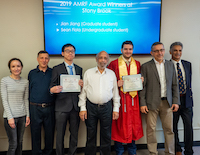
Two Armstrong Memorial Research Foundation (AMRF) Awards were given out to the following students in the Electrical & Computer Engineering Department at Stony Brook University: Sean Fiola, a graduating undergraduate student, and Jian Jiang, a graduate student. The awardees were selected on the basis of excellence in high GPA achievement. Each award consisted of a certificate together with a check for $1000.
ECE Celebrates Scott Tierno and Opens Remodeled Labs
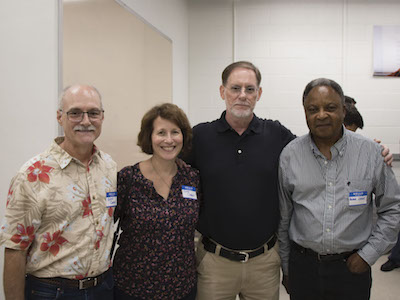 Faculty, staff, and alumni of the College of Engineering and Applied Sciences gathered
on Monday, September 16, 2019, for the opening of the remodeled Embedded Systems Design
Laboratory (ESDL) and the Digital Systems Rapid Prototyping Laboratory (DSRPL) and
to celebrate the accomplished career of long-time staff member Scott Tierno. Please
follow the link below for a gallery of pictures from the event.
Faculty, staff, and alumni of the College of Engineering and Applied Sciences gathered
on Monday, September 16, 2019, for the opening of the remodeled Embedded Systems Design
Laboratory (ESDL) and the Digital Systems Rapid Prototyping Laboratory (DSRPL) and
to celebrate the accomplished career of long-time staff member Scott Tierno. Please
follow the link below for a gallery of pictures from the event.
Welcome to Bryant Gonzaga
The Electrical & Computer Engineering Department welcomes Bryant Gonzaga as a new staff member. Bryant is joining our team of instructional support specialists and will be facilitating the labs for ESE 380, 381, and 382.
ECE Department Welcomes Dr. Peng Zhang

The Electrical & Computer Engineering Department welcomes Dr. Peng Zhang as a new faculty member of the department. Dr. Zhang received two Ph.D. degrees, one from Tsinghua University in 2002 and another from the University of British Columbia, in 2009. Before joining our department, Dr. Zhang held the Francis L. Castleman Distinguished Professorship with the University of Connecticut, and he was also a Centennial Term Professor there.
Summer WISE Program Gives Girls Hands-on STEM Experience
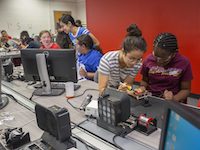
The Women in Science and Engineering (WISE) Honors Program teamed up with the Department of Electrical and Computer Engineering (ECE) and iCREATE-Division of Information Technology to hold the Summer WISE program, which brought Long Island middle school girls to Stony Brook University to find their inner engineer and take part in a STEM program they will remember for years to come. This outreach initiative focused on providing the young women with exciting application-based and hands-on engineering experiences to help grow their confidence and engineering skill sets.
Mónica Bugallo Appointed Associate Dean for Diversity and Outreach
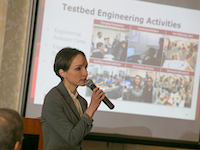
Mónica Bugallo, Professor in the Department of Electrical and Computer Engineering and Faculty Director of the Women in Science and Engineering (WISE) Honors program, has been appointed Associate Dean for Diversity and Outreach in the College of Engineering and Applied Sciences (CEAS).
National Grid Helps Stony Brook Engineer a Transformation
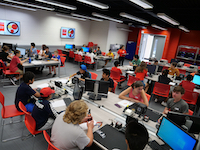
A gift from National Grid supports the ECE department's Engineering Summer Camp programs, led by Professor Mónica Bugallo.
Scientists Awarded $3.2 Million to Improve Delivery Room Decisions
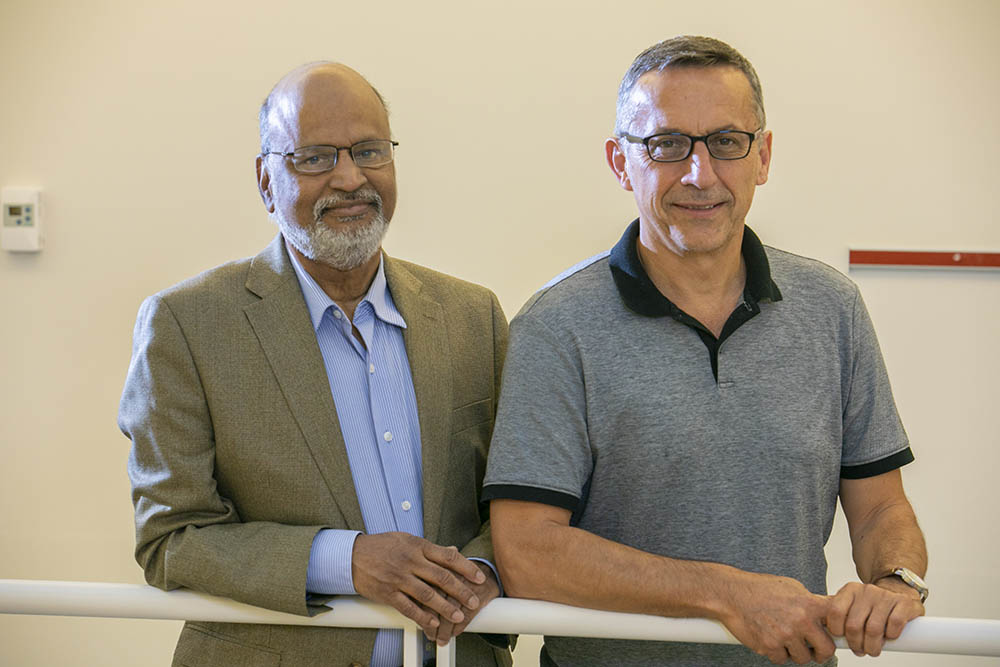
A multi-disciplinary team led by the College of Engineering and Applied Sciences (CEAS) has received $3.2 million under the National Institutes of Health (NIH) Research Project Grant Program (RO1) to investigate machine learning methods for classification of intrapartum signals (FHR and uterine activity) that has the potential to significantly outperform the accuracy of contemporary methods. The project is called “Rethinking Electronic Fetal Monitoring to Improve Perinatal Outcomes and Reduce Frequency of Operative Vaginal and Cesarean Deliveries.”
Yousef El-Laham Wins Best Student Paper Award
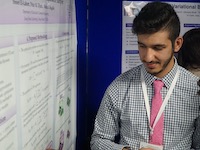
ECE PhD student Yousef El-Laham was awarded a Best Student Paper Award at the International Conference on Acoustics, Speech, and Signal Processing (ICASSP).
Stony Brook Launches New Institute for AI-Driven Discovery and Innovation

The AI Institute will serve as a hub for the AI research effort at Stony Brook University and will fuel the workforce for the AI-driven economy of the future through programs that fuse computer science, engineering and applied mathematics with medicine, life sciences, and the arts and humanities.
ECE Professors Short, Salman, and Milder Receive Awards from IEEE

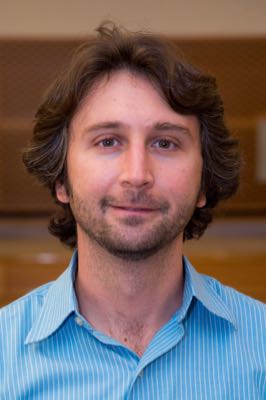
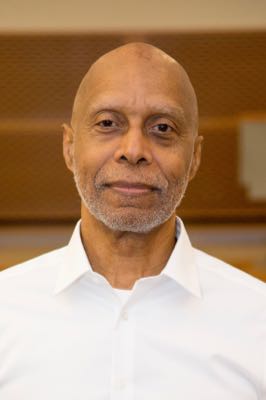
ECE professors Kenneth Short, Emre Salman, and Peter Milder were recognized with awards at the annual IEEE Long Island Section Awards Banquet.
Spring 2019 Distinguished Lecture in ECE: John A. Stankovic

We are proud to announce that John A. Stankovic from the University of Virginia will deliver the Distinguished Lecture in ECE for the Spring 2019 semester. Prof. Stankovic will present "Research Challenges and Solutions for IOTT/CPS" on Friday April 26, at 11:00am in Light Engineering 250.
Kenneth Ng Receives Undergraduate Recognition Award
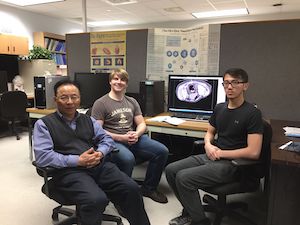
ECE undergraduate students Kenneth Ng has received a University Undergraduate Recognition Award for his work in the laboratory of Professor Jerome Liang
ECE Students Receive Armstrong Memorial Research Foundation Awards
ECE undergraduate and graduate students receive Armstrong Memorial Research Foundation Awards
Inaugural Distinguished Lecture in ECE: H. Vincent Poor
The ECE department is proud to announce a series of Distinguished Lectures in Electrical and Computer Engineering. The department will be hosting a series of prominent speakers who will present their research. All are welcome to attend.
Our inaugural speaker will be H. Vincent Poor of Princeton University, who will present "Fundamentals for Low Latency Communications" on Friday August 24th at 11:00am, in Light Engineering 250.
Seven ECE Faculty Belong to the National Academy of Inventors
The National Academy of Inventors® is a member organization comprising U.S. and international universities, and governmental and non-profit research institutes, with more than 4,000 individual inventor members and Fellows from more than 250 institutions worldwide. Of the 74 members in the Stony Brook chapter, seven are ECE faculty.
ECE Graduation Open House and Awards Ceremony
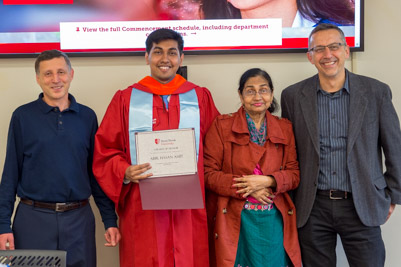
To celebrate our 2018 graduates, the ECE department held an open house and awards ceremony on Friday May 18th. All graduates and their families and friends were invited to see the department, tour our labs, and meet the faculty and staff.
Amirhossein Goldan and Dmytro Gudkov Named Winners of NAI Awards

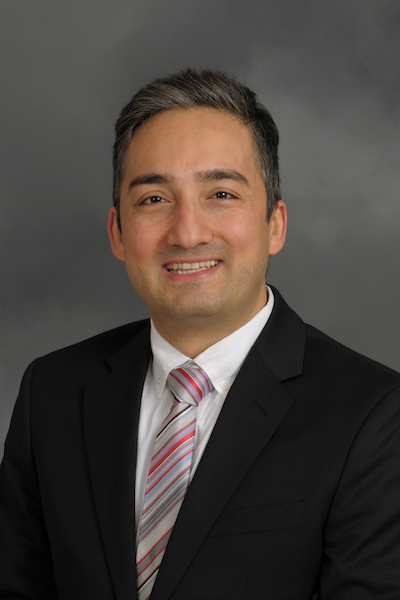
ECE-affiliated researchers Amirhossein Goldan, Ph.D. and Dmytro Gudkov, Ph.D. have been named two of the winners of the Stony Brook University Chapter of the National Academy of Inventors "Young Academic Inventor's Award."
Electrical Engineering Student Michael D'Agati Featured as URECA Researcher of the Month
Michael D'Agati, a senior Electrical Engineering major, has been featured by Stony Brook's Undergraduate Research and Creative Activities (URECA) as the student researcher of the month for February 2018. Please click here to read an interview with Michael.
Stony Brook and Army Researchers Develop Low-Cost Semiconductor Material for Night Vision Systems
Researchers from the Stony Brook ECE department and the U.S. Army Research Laboratory announce a new synthesis process for low-cost fabrication of a material previously discounted in literature for high-sensitivity infrared cameras, opening new possibilities for future Army night-time operations. (Image credit: US Army Photo)
Two ECE Students Win Armstrong Memorial Research Foundation Awards
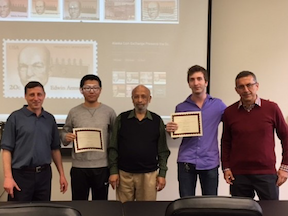
ECE Students Matthew Dowling and Weicheng Liu received awards from the Armstrong Memorial Research Foundation.
Robertazzi, Wang, and Skiena Receive Patent Related to Power Distribution Systems
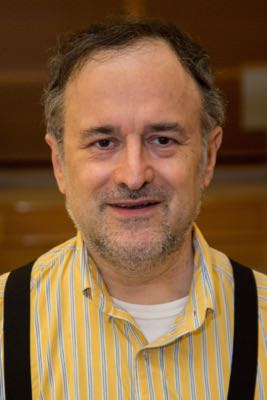
This summer Prof. Tom Robertazzi, ex-ECE PhD student Kai Wang and Prof. Steve Skiena of the Computer Science Dept. have been awarded a US patent (number 9,728,971) for an elegant procedure to balance the phases of electric power distribution systems.
Professor Mikhail Dorojevets Co-Founds QUANTARCTIC
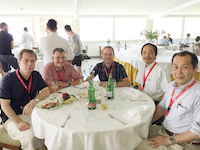
Prof. Mikhail Dorojevets with four other founding members representing four world continents have founded QUANTARCTIC, the worldwide community of people developing Flux Quantum Architectures, Tools, and Integrated Circuits with superconductor technology. The QUANTARCTIC mission is to connect people working on flux quantum computing and bring new people, companies, and ideas to the field.
Studying Hardware and Software for Smart Devices
ECE Professors Fan Ye, Peter Milder, and Yuanyuan Yang receive NSF grant to study hardware and software for pervasive edge computing. The researchers will design, create and evaluate a novel hardware and software platform where modularized FPGA/software computation components can be easily composed like interlocking Lego pieces, to create customized edge sensing and computing devices for "smart" applications.
ECE Faculty and Staff Receive SUNY Chancellor's Award for Excellence
Mónica F. Bugallo, Associate Professor of Electrical and Computer Engineering, received recognition for Excellence in Teaching, and Anthony Olivo, Senior Technician, for Excellence in Professional Service.
ECE Students Receive Recognition Awards
Two ECE department students—Scott Kontak and Yuriy Slashchev—have been chosen to receive Undergraduate Recognition Awards for Academic Excellence.
PhD Student Receives NSF Professional Development Award
Third-year ECE PhD student Lingqing Gan received the 2017 National Science Foundation Professional Development Award, which supported her attendance at the iREDEFINE workshop at the ECEHDA conference.
ECE Professor Wins Google Faculty Research Award
ECE assistant professor Fan Ye has been awarded a Google Faculty Research Award. This is a competitive and prestigious award aimed to strengthen Google’s ties with researchers and to support cutting-edge work on “problems that will impact how future generations use technology.”
Fan Ye Studies Smart Environments
ECE assistant professor Fan Ye receives NSF CAREER award supporting his research on foundational hardware and software for smart environments.
Profs. Salman and Stanacevic Research Wirelessly Powered Computing Devices
Associate Professors Emre Salman and Milutin Stanaćević are inventing new methods to use wireless energy in computing devices. Contrary to existing methods that convert wirelessly harvested power into a direct current (DC) voltage and rely on conventional computing methodologies, Salman and Stanacevic propose an alternating current (AC) computing based system where the wirelessly harvested power is directly used for computation without converting into a DC voltage.
Stony Brook's IEEE-Eta Kappa Nu Wins Outstanding Chapter Award
The Institute of Electrical and Electronics Engineers (IEEE) has awarded Stony Brook’s Theta Mu chapter of IEEE-Eta Kappa Nu (IEEE-HKN) with the Outstanding Chapter Award for 2015–2016. Stony Brook’s IEEE-HKN chapter, with approximately 80 ECE students, holds a number of events and workshops aimed at promoting ECE, giving students professional development opportunities, and benefitting the community.
Prof. Mikhail Dorojevets Receives IARPA Contract for Cyber Security Research
Prof. Mikhail Dorojevets, Associate Professor of Electrical and Computer Engineering, was awarded a contract related to cyber security from the Office of Director of National Intelligence, IARPA. It is the first ever IARPA contract awarded to Stony Brook University. Prof. Dorojevets's research interests include energy-efficient superconductor computing, cyber security, cryptography, parallel computer architectures, and all aspects of processor and circuit design.
ECE Faculty and Staff Hold Retreat
The faculty and staff of the ECE department started the semester with a day-long retreat to plan for the coming year. The agenda included planning for the upcoming ABET visit, discussing the results of internal course evaluations, and brainstorming for ways to improve the department’s undergraduate and graduate programs.
ECE Students Receive Armstrong Research Foundation Awards
Two undergraduate and two graduate students in the Electrical & Computer Engineering Department were given Armstrong Memorial Research Foundation (AMRF) Awards at a departmental Town Hall Meeting on May 16, 2016 for excellence in high GPA achievement. The two undergraduate awardees are Steven Massaro and Zahraa Krayem, and the two graduate awardees are Inigo Urteaga and Jun Duan.
ECE PhD Student Wins Award at SRC TECHCON
Stony Brook ECE graduate student Weicheng Liu has received the Best in Session Award at the 2016 SRC TECHCON Conference held in Austin, Texas. Weicheng's paper has proposed a novel method for automatic clock tree development to reduce power consumption. Weicheng is a PhD student at the NanoCAS Lab advised by Prof. Emre Salman.
Prof. Petar Djuric Takes the Helm
Professor Petar M. Djuric has been appointed the chair of the ECE department. With the department more than 25 years, Djurić has served the department, college and university in a number of capacities. His primary research focus is in the area of signal and information processing with specific interest in the theory of signal modeling, detection, and estimation; Monte Carlo-based methods; signal and information processing over networks; machine learning, RFID, and the Internet of Things.
Prof. Shan Lin Receives NSF CAREER Award
Dr. Shan Lin, Assistant Professor of Electrical and Computer Engineering, has been awarded the National Science Foundation's Early Career Development (CAREER) Award, which is given to young faculty members for research and educational activities. This award will support Dr. Lin's work on ensuring the safety and security of networks in connected hospitals.
Petar M. Djuric Elevated to EURASIP Fellow
At the beginning of every year, the European Association for Signal Processing (EURASIP) recognizes "outstanding achievements of its members and volunteers. Each year, a select group of signal processing researchers is elevated to EURASIP Fellow, the Association's most prestigious honour." This year one of the four recipients of this high distinction is Petar M. Djuric. His citation reads "For contributions to the theory and practice of Bayesian signal processing.”
ECE Doctoral Graduate Wins SPEC Dissertation Award
The Standard Performance Evaluation Corporation (SPEC) Distinguished Dissertation Award is given each year to a doctoral dissertation which exemplifies scientific significance, impact and originality. Stony Brook University’s (SBU) own Yufei Ren was chosen as the winner for 2015 from amongst fifteen phenomenal dissertations from institutions across the globe.
Using Glass to Improve Graphene's Powerful Conductivity
A team led by ECE assistant professor Matthew Eisaman has developed a method using common glass for creating resilient, customized, and high-performance graphene. The material is known for its durability and electrical conductivity and is used in the energy, electronics and semiconductor industries. The graphene-enhancing process is detailed in a paper published in Scientific Reports.
ECE Student Wins 2016 Goldwater Scholarship
Electrical Engineering student Michael D’Agati is a recipient of the 2016 Goldwater Scholarship. Michael is a sophomore majoring in Electrical Engineering. He is interested in nanotechnology and biomedical applications, and is studying the use of 3-D graphene supercapacitors to power an in vivo embedded system for health monitoring.
ECE PhD Candidate Receives European Physical Society Award
Prachi Chitnis, a Stony Brook University graduate student mentored by Kevin Brown, a physicist at the U.S. Department of Energy’s (DOE) Brookhaven National Laboratory’s Collider-Accelerator Department and the department’s Prof. Thomas Robertazzi, has been awarded the 2015 Experimental Physics Control Systems Prize by the European Physical Society (EPS) for her “significant contributions to the reliability of the RHIC beam permit system.”
Prof. Emre Salman Selected as Finalist for Discovery Fund Prize
Emre Salman, Assistant Professor in ECE Department, was selected as one of the four finalists for the Stony Brook Discovery Fund Prize. He and Milutin Stanaćević, Associate Professor of ECE, proposed a novel method for performing computation in energy-autonomous systems that “harvest” power from ambient sources. The proposed method significantly enhances energy efficiency by recycling electrical charge in a unique way that particularly fits wireless power harvesting systems.
Grandfather Receives EE Degree
Mr. Roger Alford, Class of 2015, is a recently graduated student in the BSEE Online program. A grandfather with three adult children and three grandchildren from the State of Michigan, Mr. Alford started his BSEE program at the University of Michigan in 1978. However, due to various life circumstances, his college career was interrupted. While he loves electrical engineering and for over three decades had a very fun, challenging career applying electrical engineering knowledge, he never has a chance to complete his bachelor degree. To demonstrate the importance of college to his grandchildren and to fulfill his lifetime dream and goal, Mr. Alford joined the BSEE online degree program at SBU in 2011.
ECE Faculty Receive NSF Grant to Develop Pervasive Edge Computing
ECE Faculty Yuanyuan Yang and Fan Ye have won a NSF grant totaling $745K for three years to develop a novel data-centric “Pervasive Edge Computing” architecture that will revolutionize next generation sensing applications. The project seeks to create a new architecture that promotes sensing data to first class citizens whose existence is independent of any particular devices.
Prof. Fan Ye Studies Indoor Navigation
Ever got lost in an unfamiliar library, hospital, train station or office building? You’re not alone. Although navigation has been standard outdoors thanks to GPS and digital maps, such capability is simply non-existent for most buildings. ECE Faculty Fan Ye is developing algorithms and systems that can automatically construct digital indoor floor maps from mobile sensing data. People carry mobile devices such as smartphones everywhere every day. These devices are packed with sensors – inertial, radio, image, sound, light. Prof. Ye’s group is developing algorithms and building systems that can take such data, extract the geometric and layout information of different kinds of architectural elements (e.g., hallways, rooms and lobbies), and piece them together for complete floor plans.
Sensor CAT: From Faculty Research to High-Tech Manufacturing
Center for Advanced Technology in Diagnostic Tools and Sensor Systems(Sensor CAT) is rooted in the ECE Department. It is one of CEAS’s most prominent tools to promote business growth in New York. We use State funding to support dozens of faculty and students who are interested in helping NY companies – or in growing their own businesses – in R&D and high-tech manufacturing.
Prof. Matthew Eisaman Receives Innovator of the Year Award
Innovate LI announced the winners of its inaugural Innovator of the Year award that recognize Long Island’s best brightest ideas. The 2015 Innovators, chosen after a two-month nomination process, will be honored at an awards breakfast at Crest Hollow Country Club, Oct 21. Among the winners in Science & Technology category is our own Matt Eisaman and his colleagues at Brookhaven National Laboratory. The winning work is reported in their paper, Nanotech Antireflection Surface Coatings, published in Nature Communications.
Optoelectronics Group
The Optoelectronics Group's research activity includes the design and development of lasers, light emitting diodes and photodetectors. Among the most recent achievements are the first demonstration of mid infrared high power cascade diode lasers with record performance parameters, fabrication of arrays of mid infrared light emitting diodes with 4 million individually addressable pixels and development of a new class of long wave infrared photodetector heterostructures based on our original metamorphic epitaxial technology.
Stony Brook Online BSEE Program Accredited
Stony Brook's online Bachelor of Science degree in Electrical Engineering (BSEE) has been accredited by the Engineering Accreditation Commission of ABET. Students in the program take all classes online and asynchronously, watching lecture videos, interacting with professors and other online students over the Internet and taking exams at local testing/proctoring centers. Through the innovative use of technology, hands-on, real experiments conducted by online students at home are the same as those in the residential program.
ECE Department Welcomes Three New Faculty Members
Three new faculty members have joined the ECE department. Dr. Matthew Eisaman joins us under a joint appointment with Brookhaven National Laboratory, where he is a physicist in the Sustainable Energy Technologies Department. Dr. Shan Lin joins us from Temple University, where he was an assistant professor since 2010, working on networked systems. Dr. Fan Ye studies mobile sensing systems and applications. Prior to joining us, he was a faculty member at Peking University and a researcher at IBM T. J. Watson.
Prof. Alex Doboli Studies Creativity in Design
The ECE department’s Alex Doboli is part of a multi-university team that has been working on the research project “INSPIRE: The Hunting of the Spark: A Systematic Study of Natural Creativity in Human Networks”. The project studies how novel ideas propagate in large groups of people – specifically how research ideas percolate through the technical community. More generally the team is studying creativity.
Prof. Peter Milder Wins ACM TODAES Best Paper Award
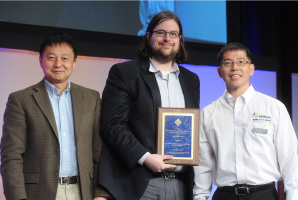
The Association for Computing Machinery has announced that a paper co-authored by ECE assistant professor Peter Milder has won the 2014 Best Paper Award for the journal Transactions on Design Automation of Electronic Systems (TODAES).
Stony Brook Students Win Solar Boat Championship
Students from the Stony Brook ECE department, advised by Prof. David Westerfeld, were winners of the IEEE Power Electronics Society Solar Splash Collegiate World Championship.
IEEE-HKN Students Take Fifth Place in Roth Pond Regatta
A cardboard boat carrying four students built by a team from the student chapters of IEEE and Eta Kappa Nu (the electrical engineering professional and honor societies, respectively) placed 5th out of about 100 boats in the 2014 Roth Pond Regatta on the Stony Brook Campus in early May. Following Roth Pond Regatta tradition, the boat was constructed of cardboard and duct tape.

